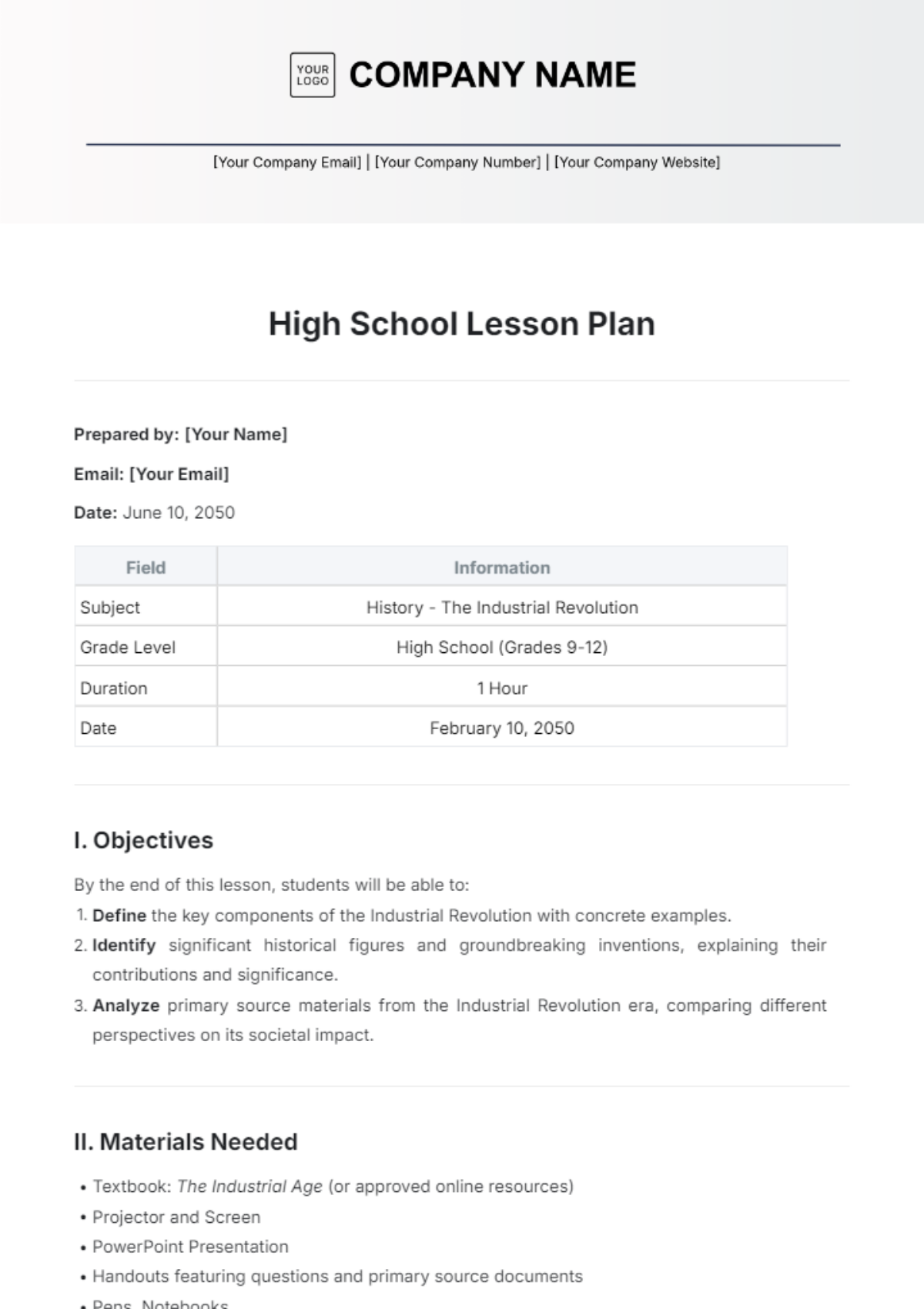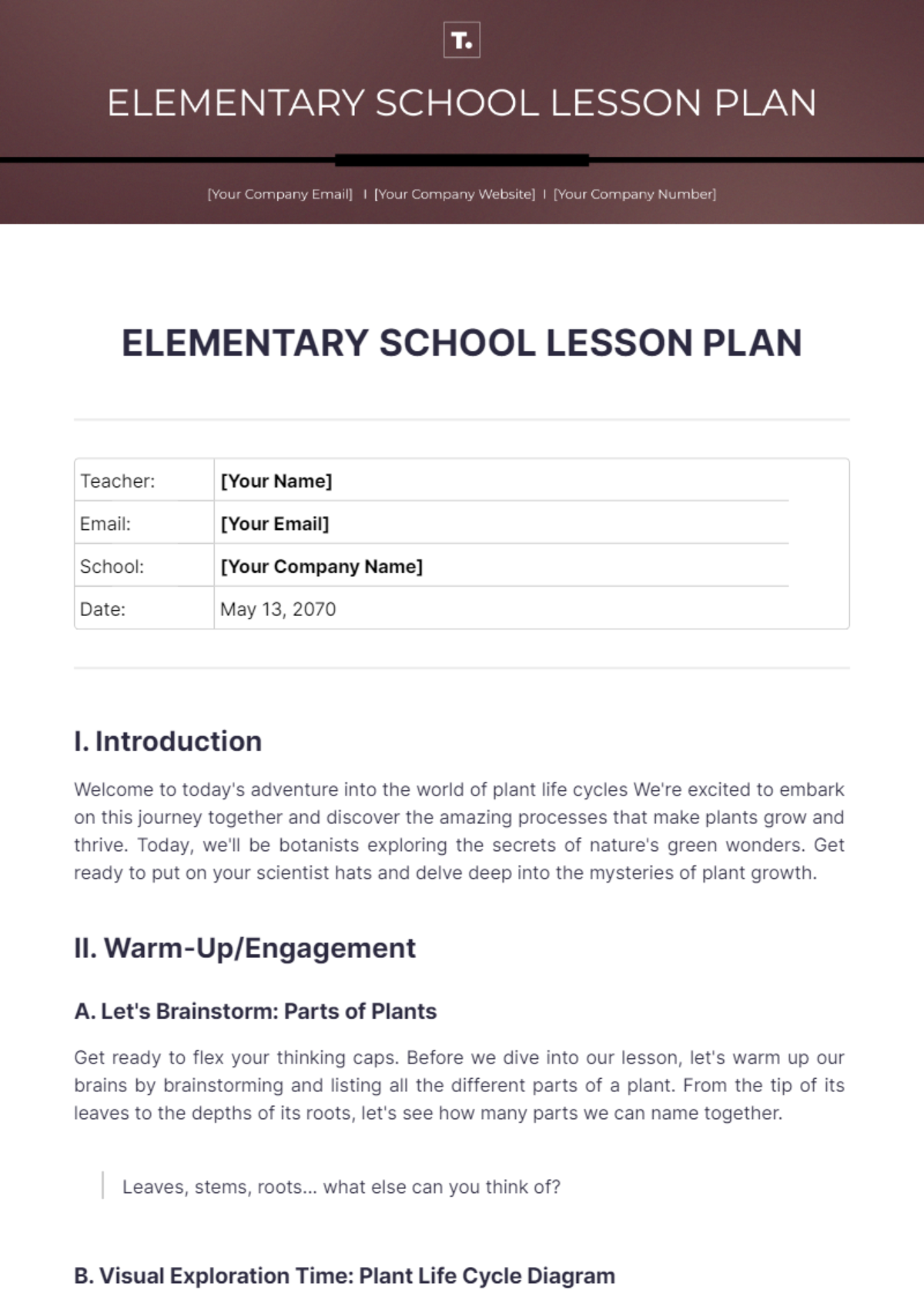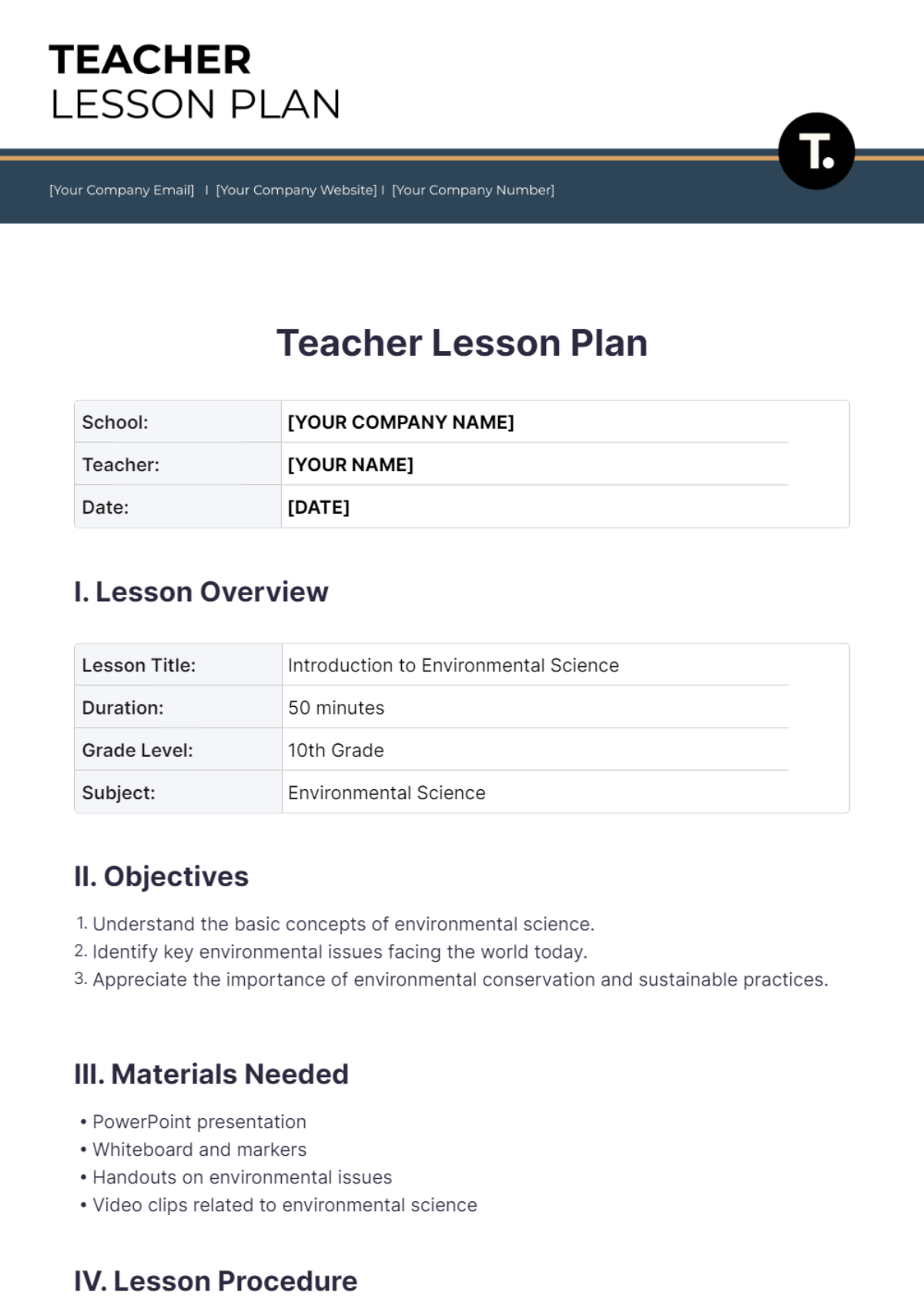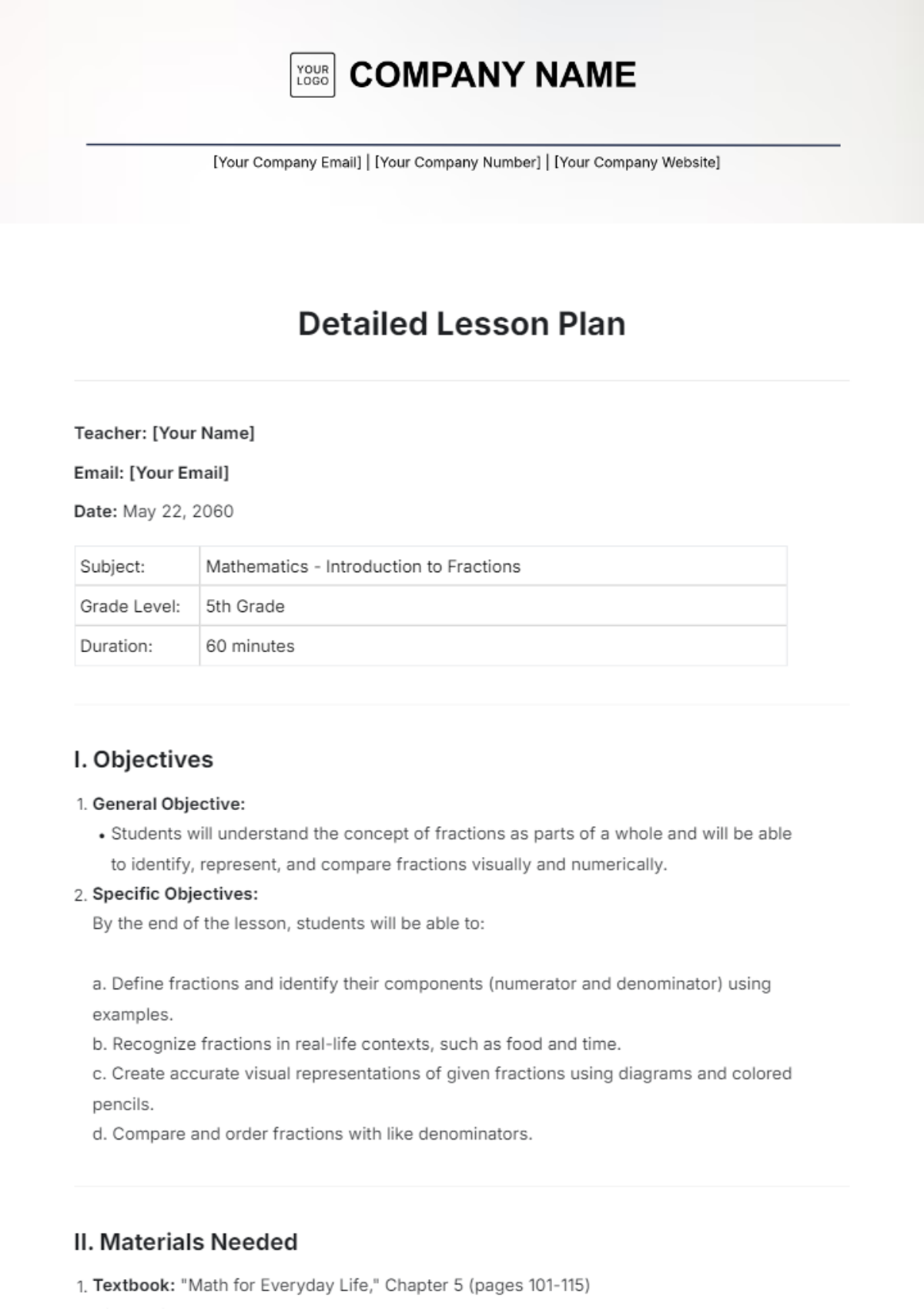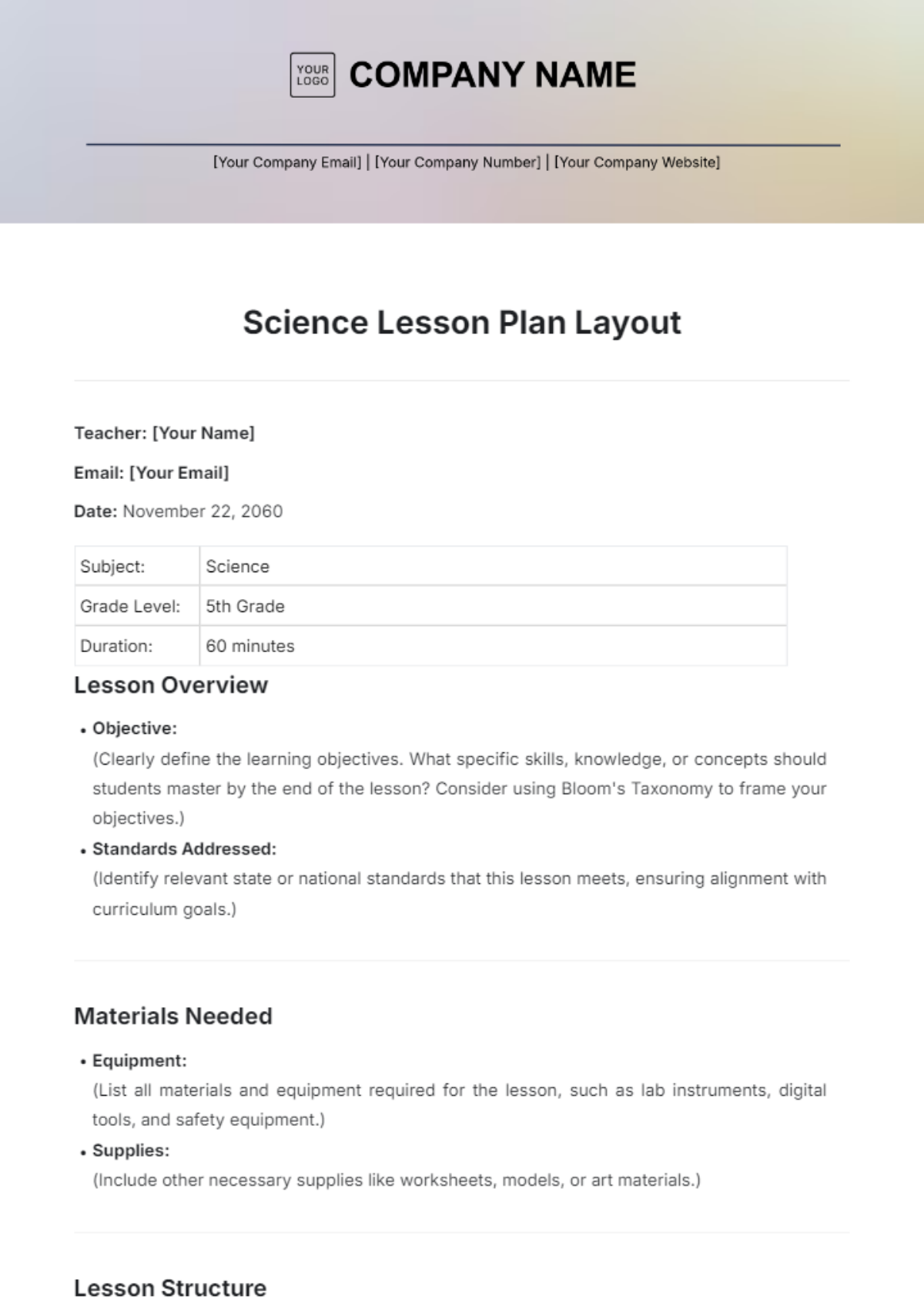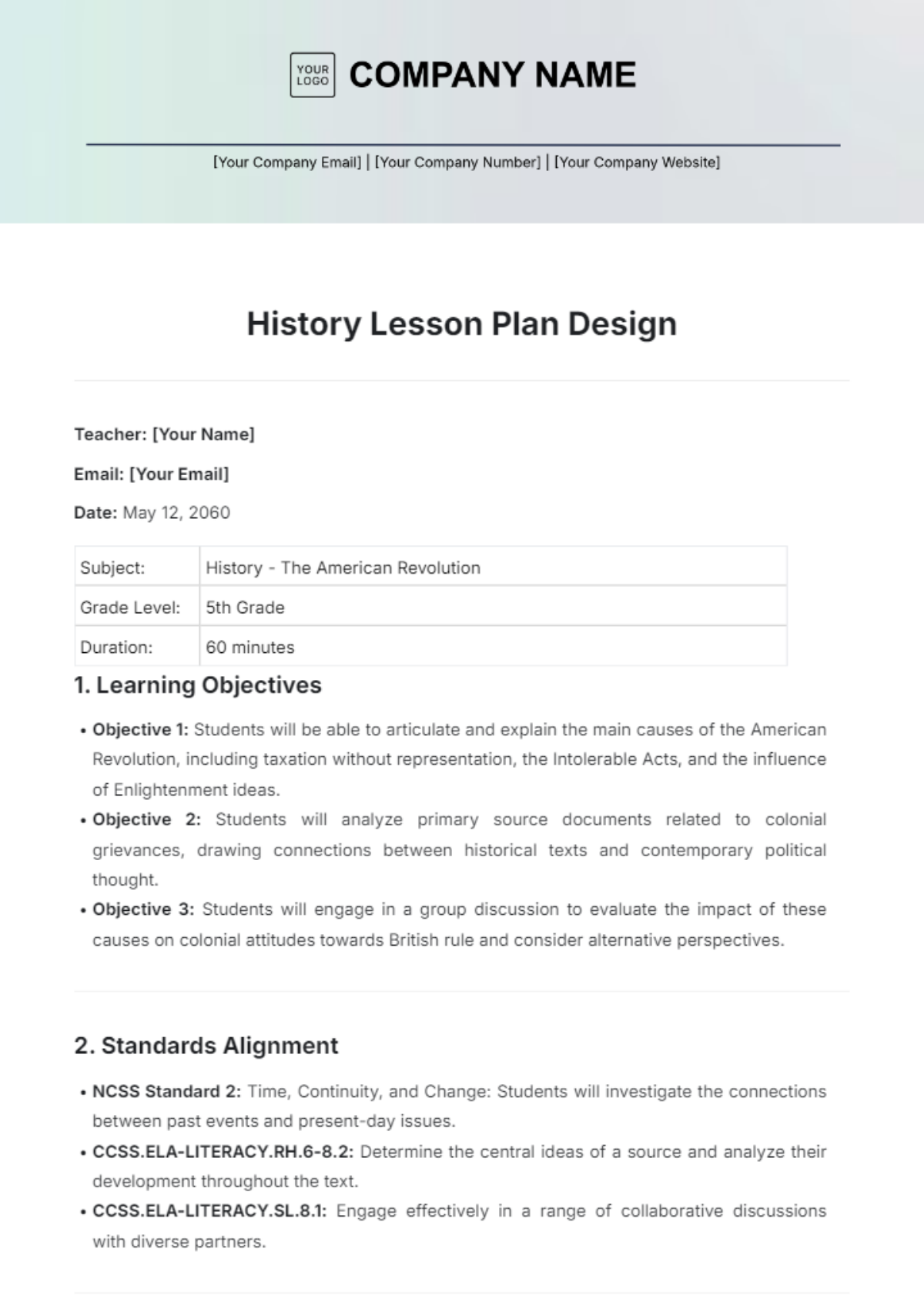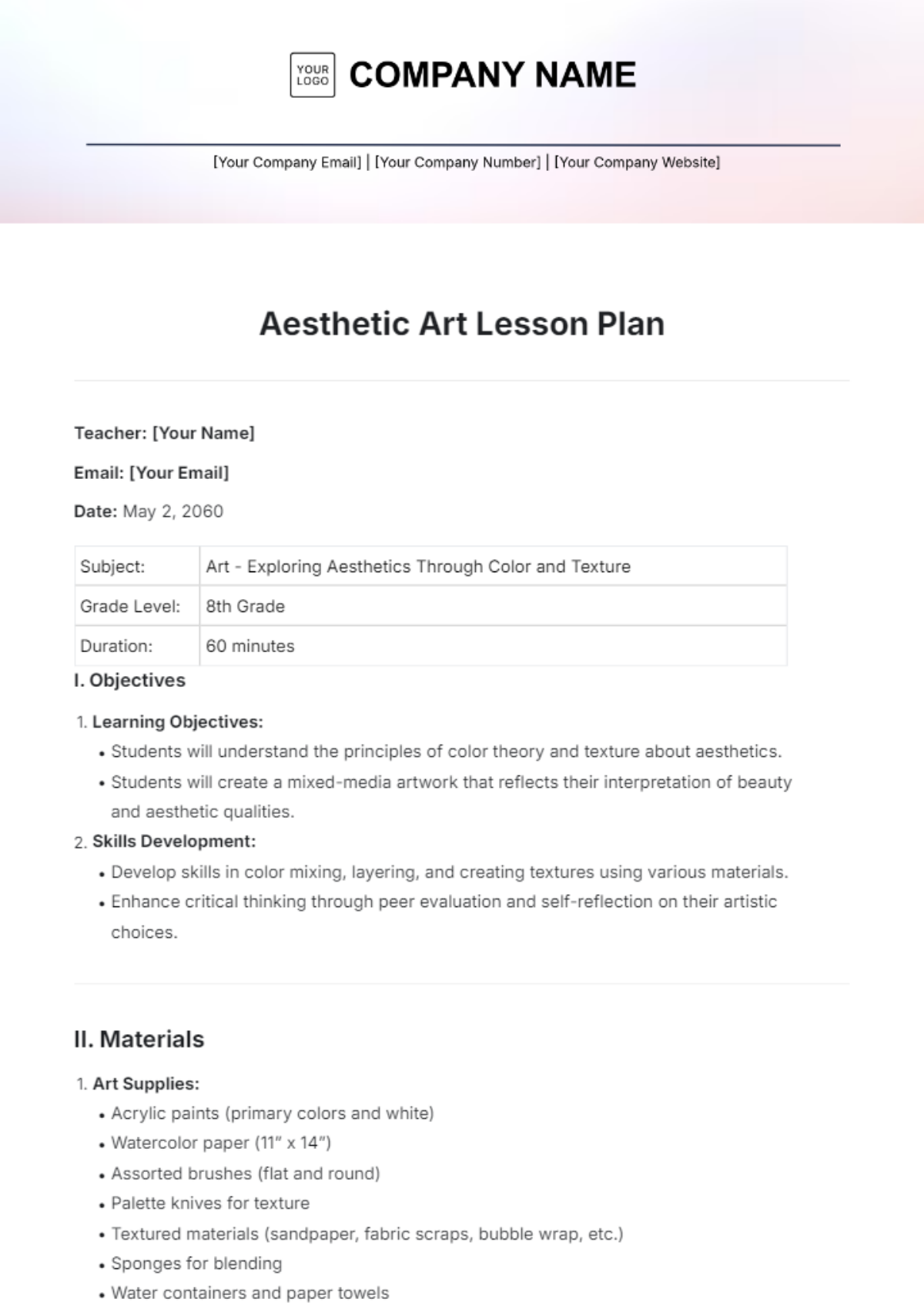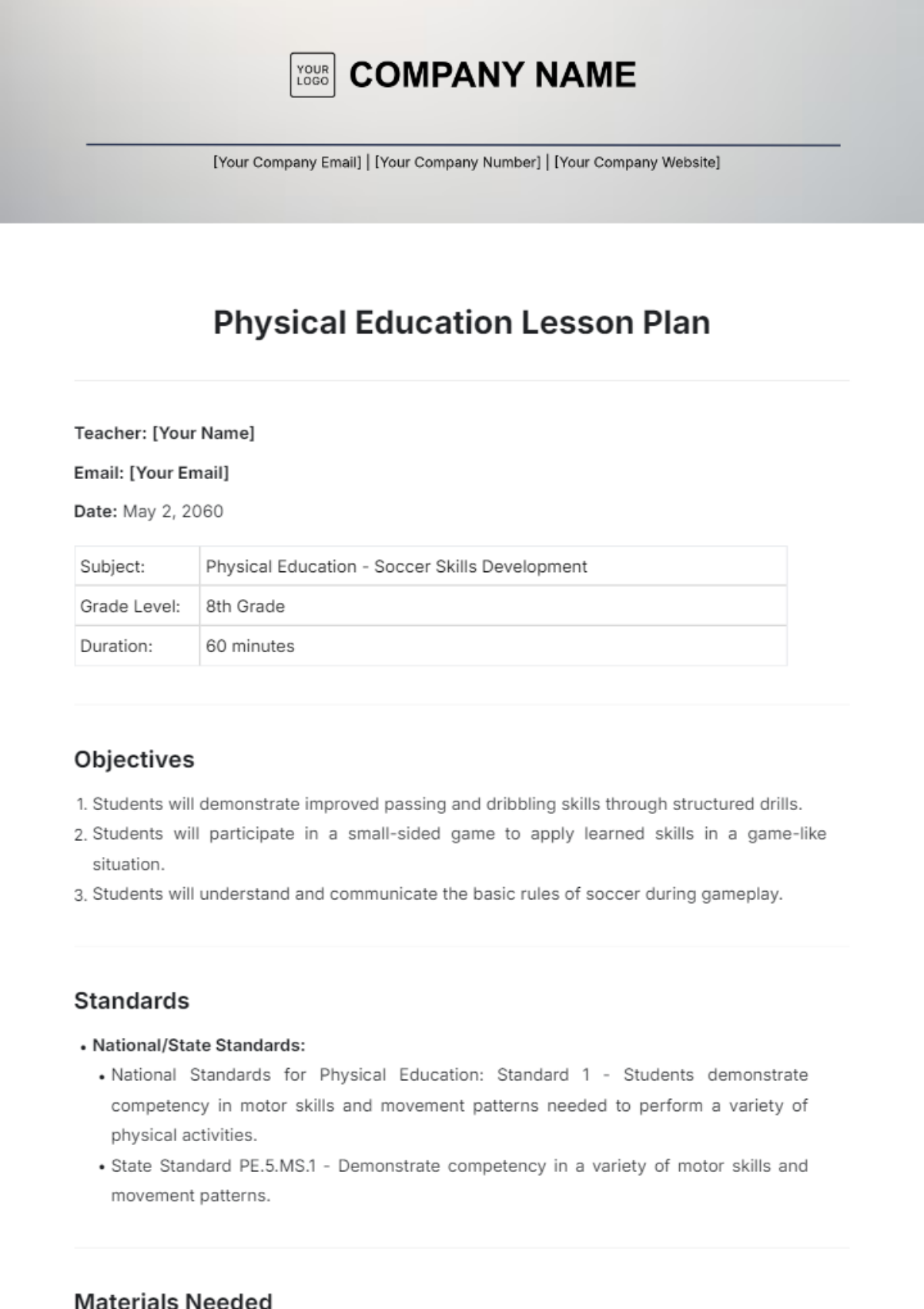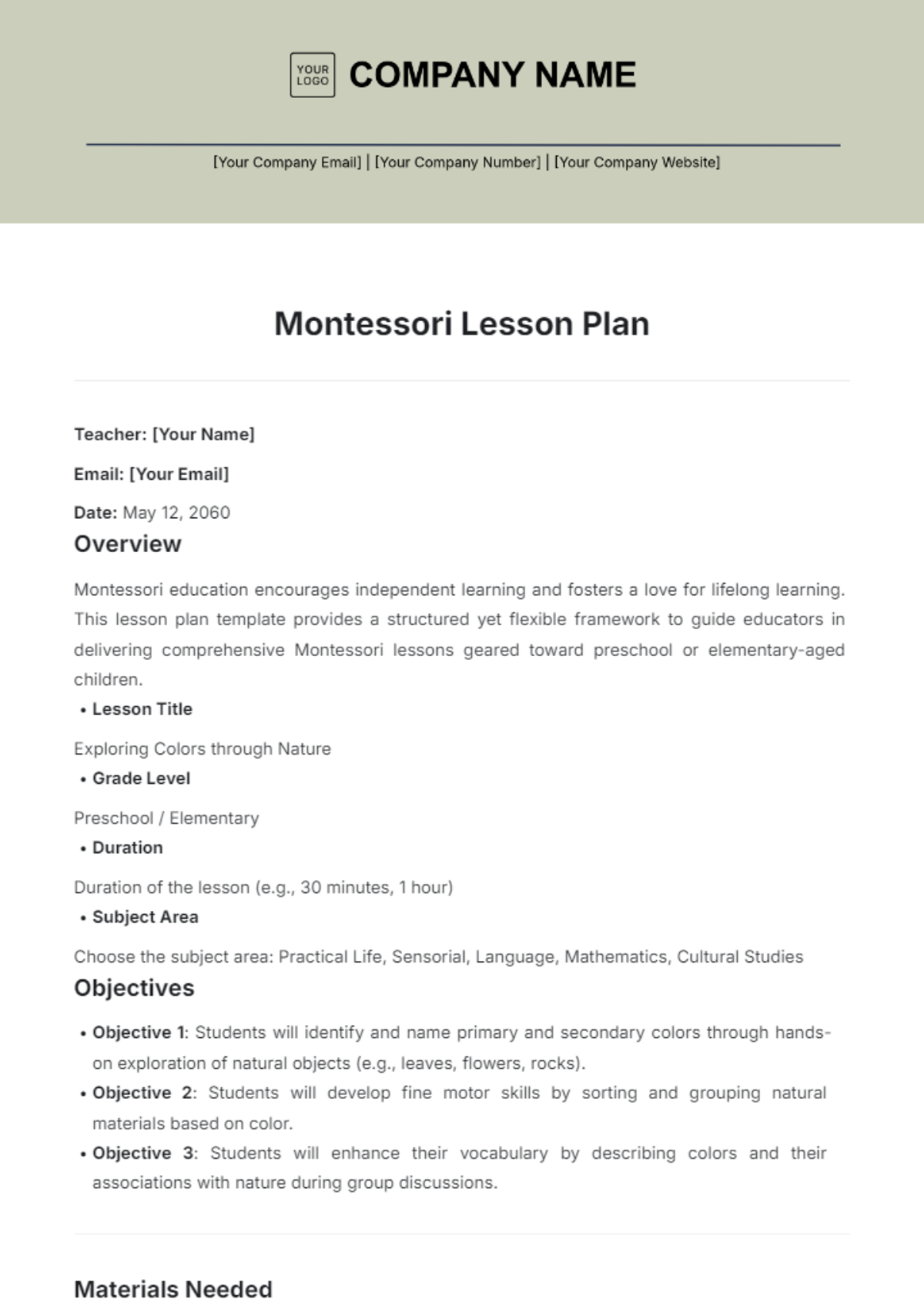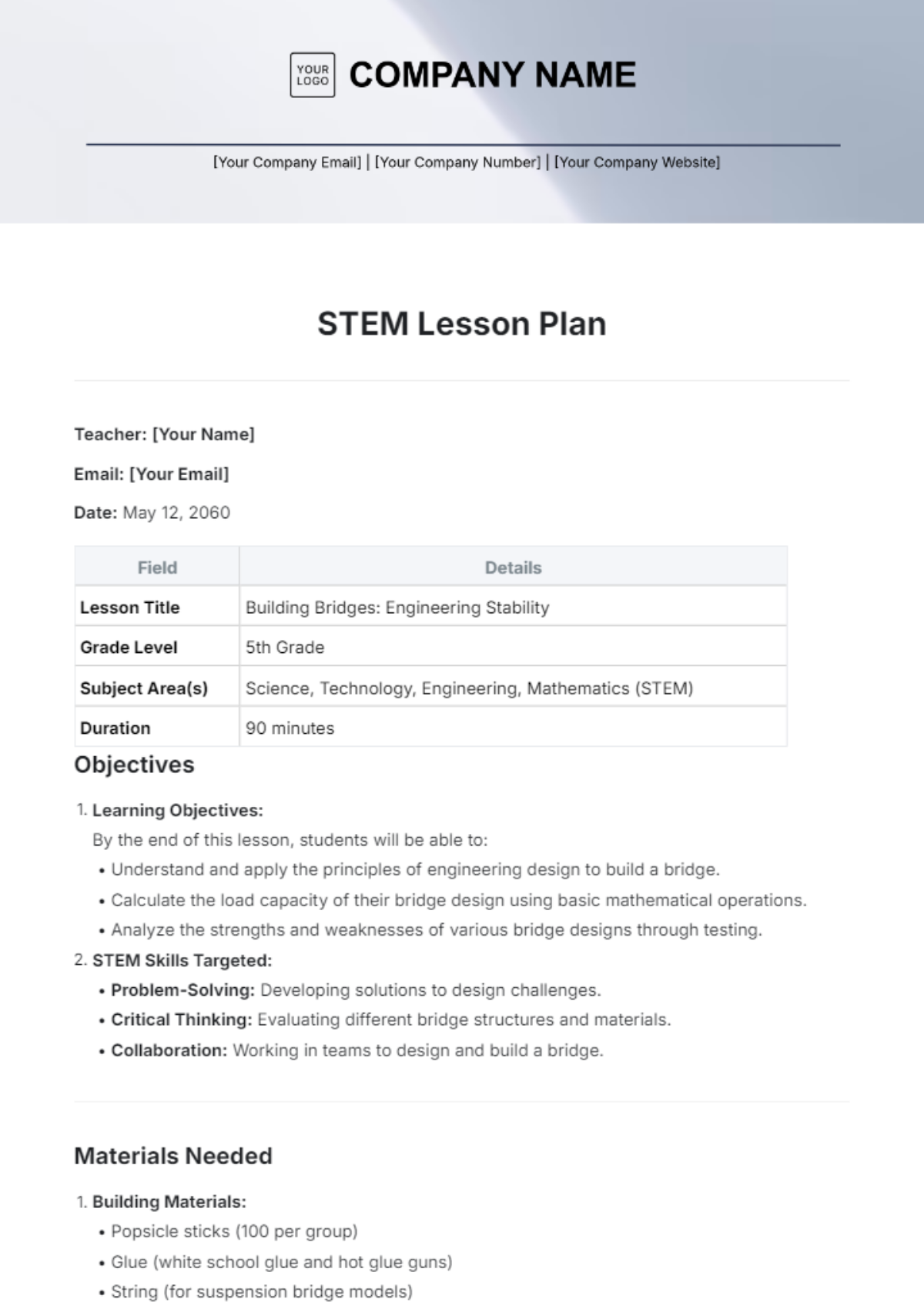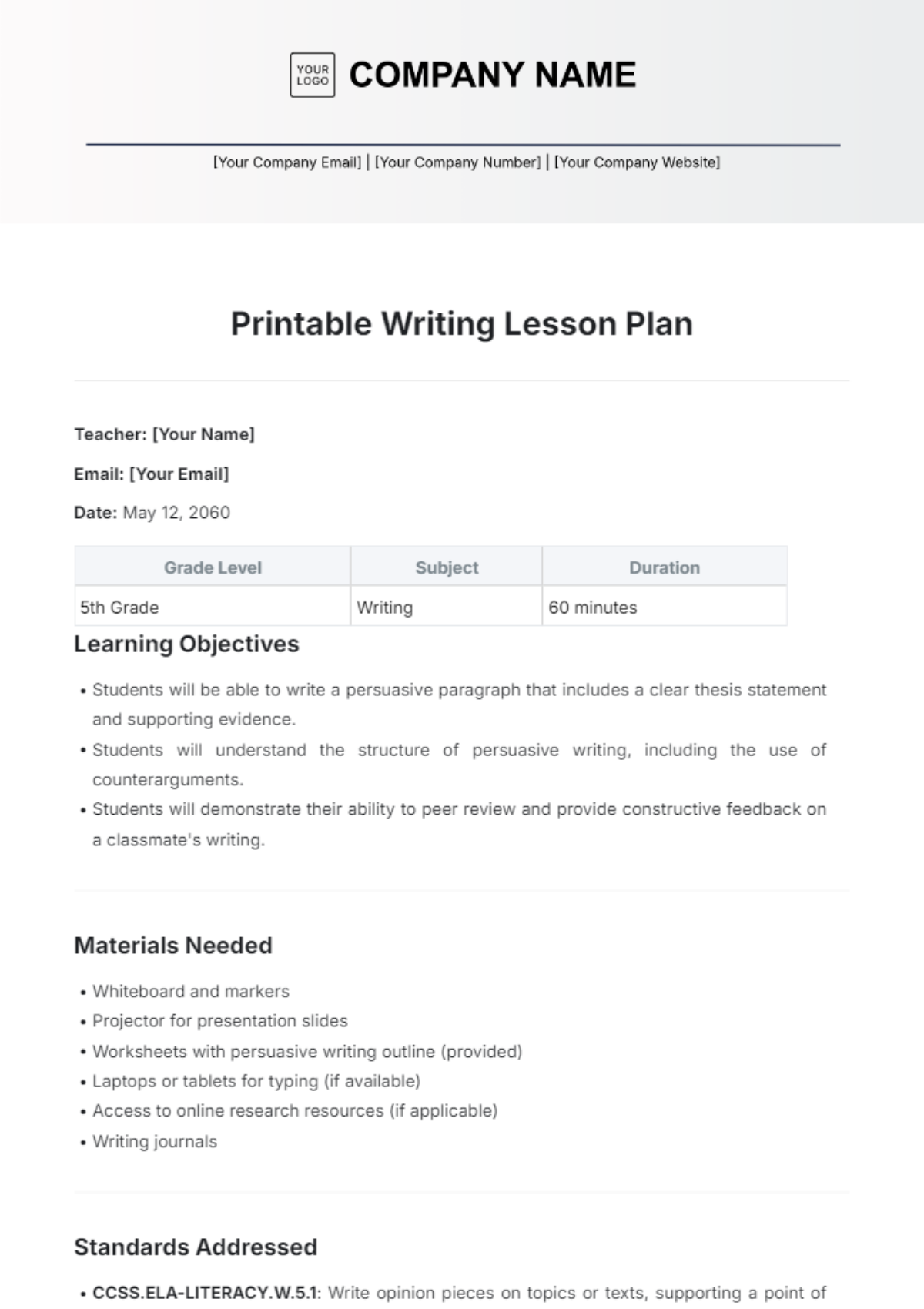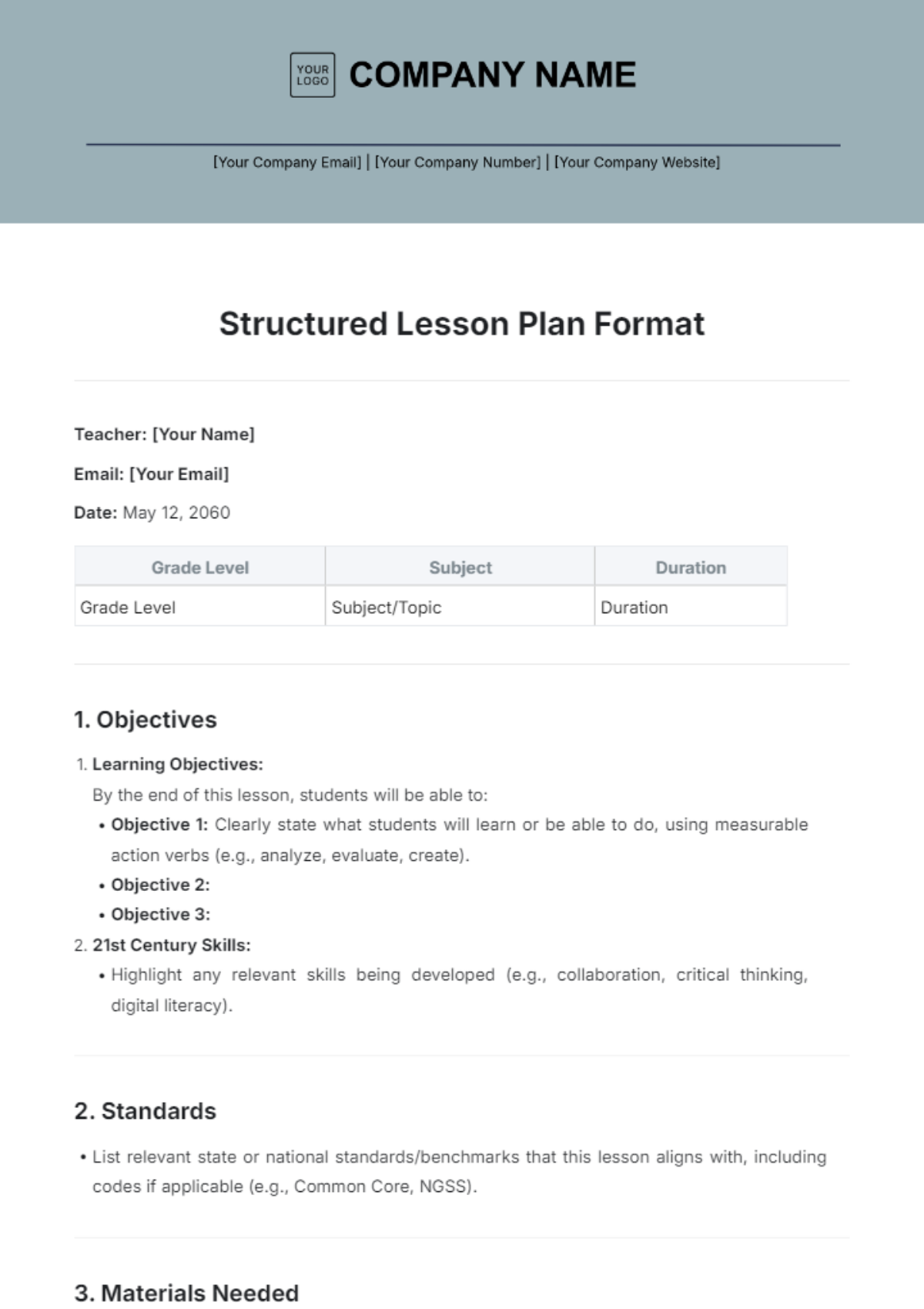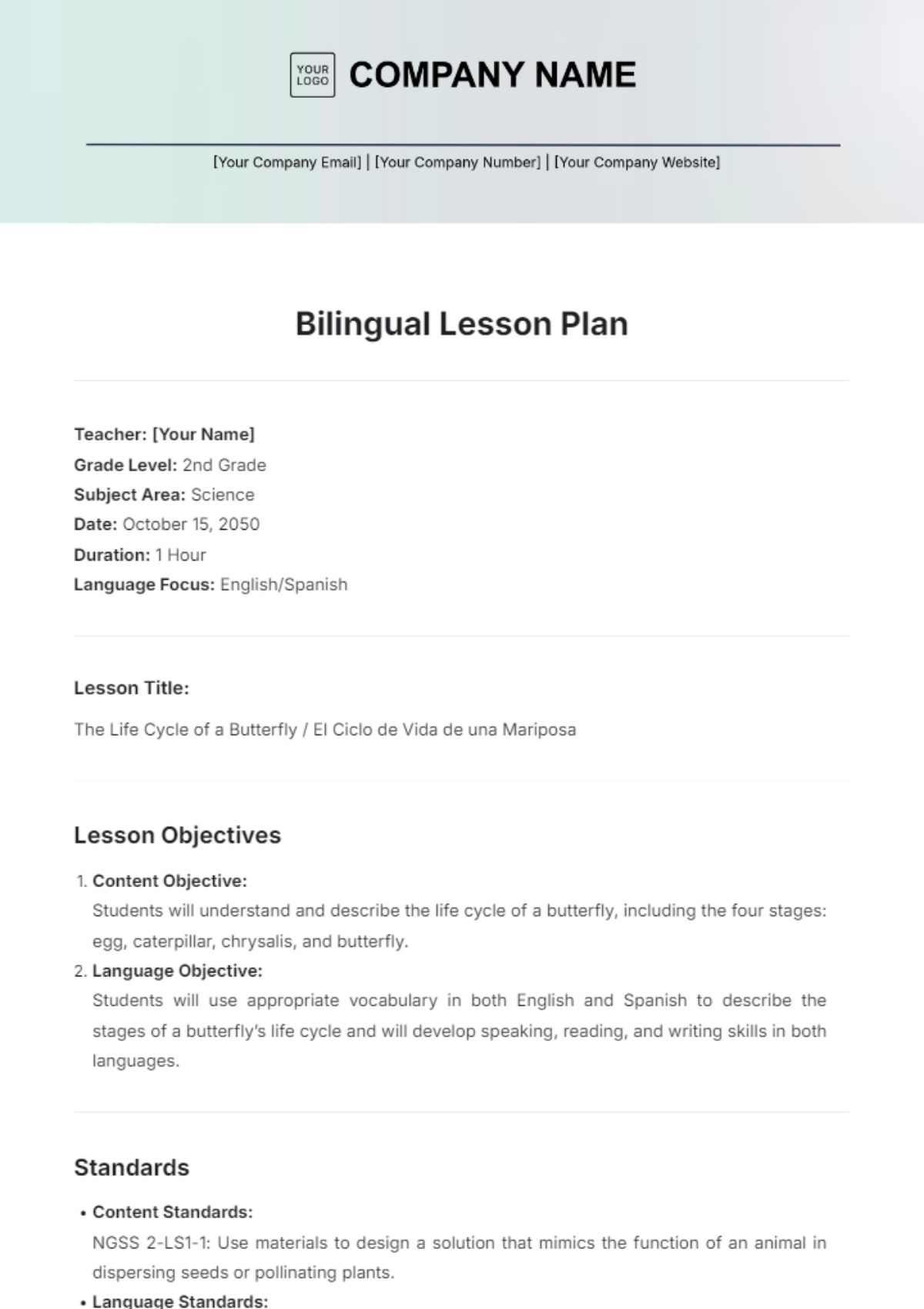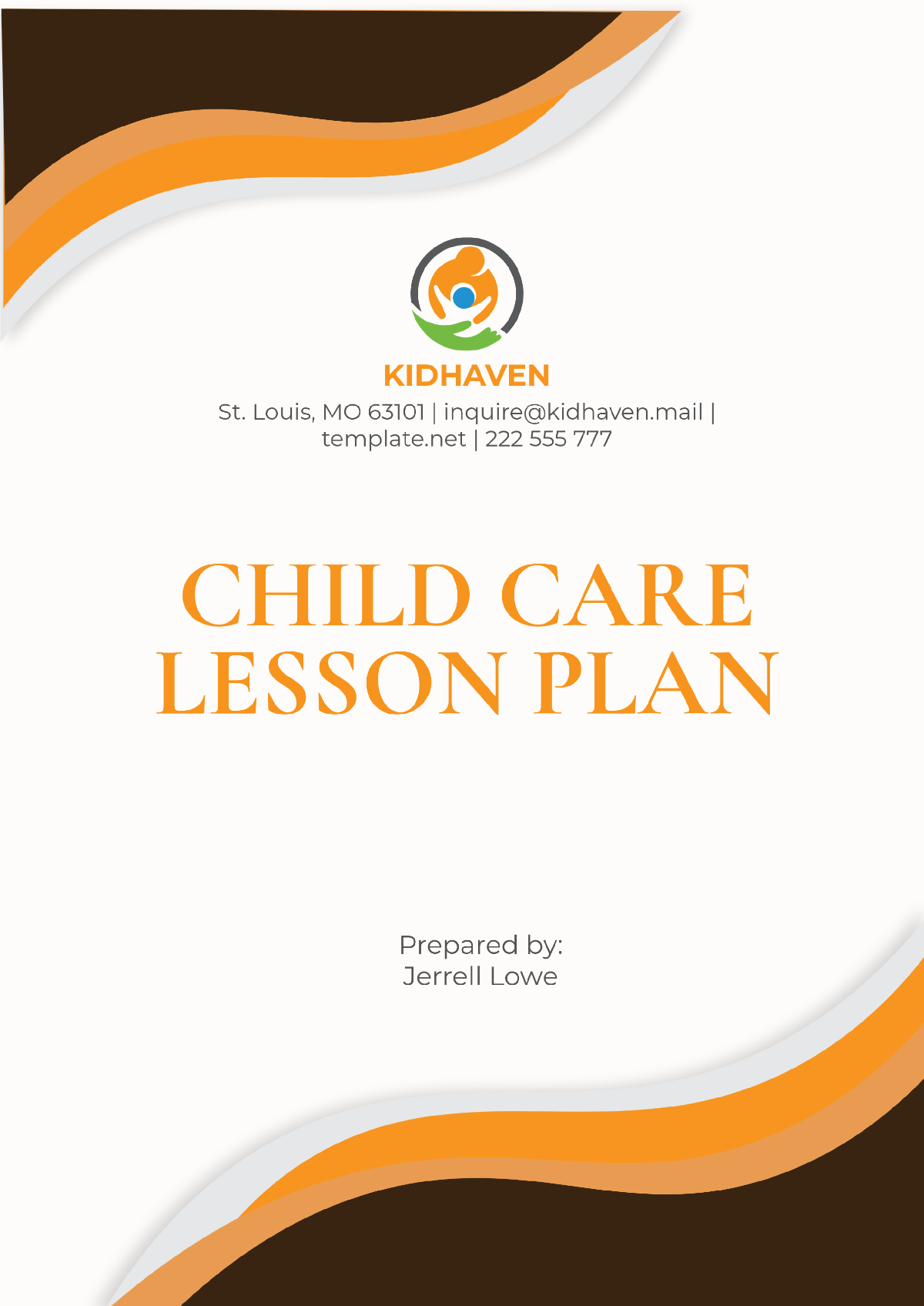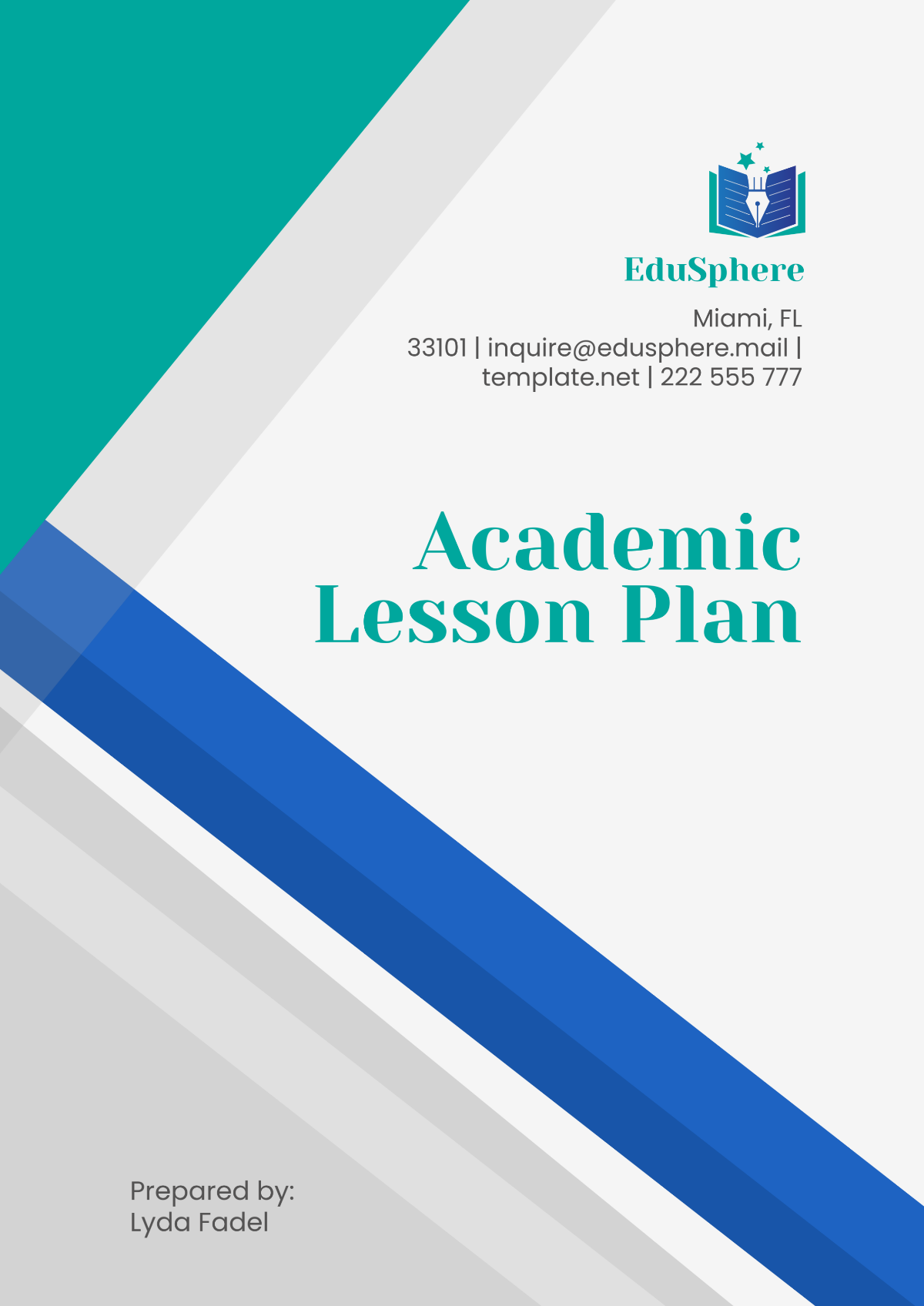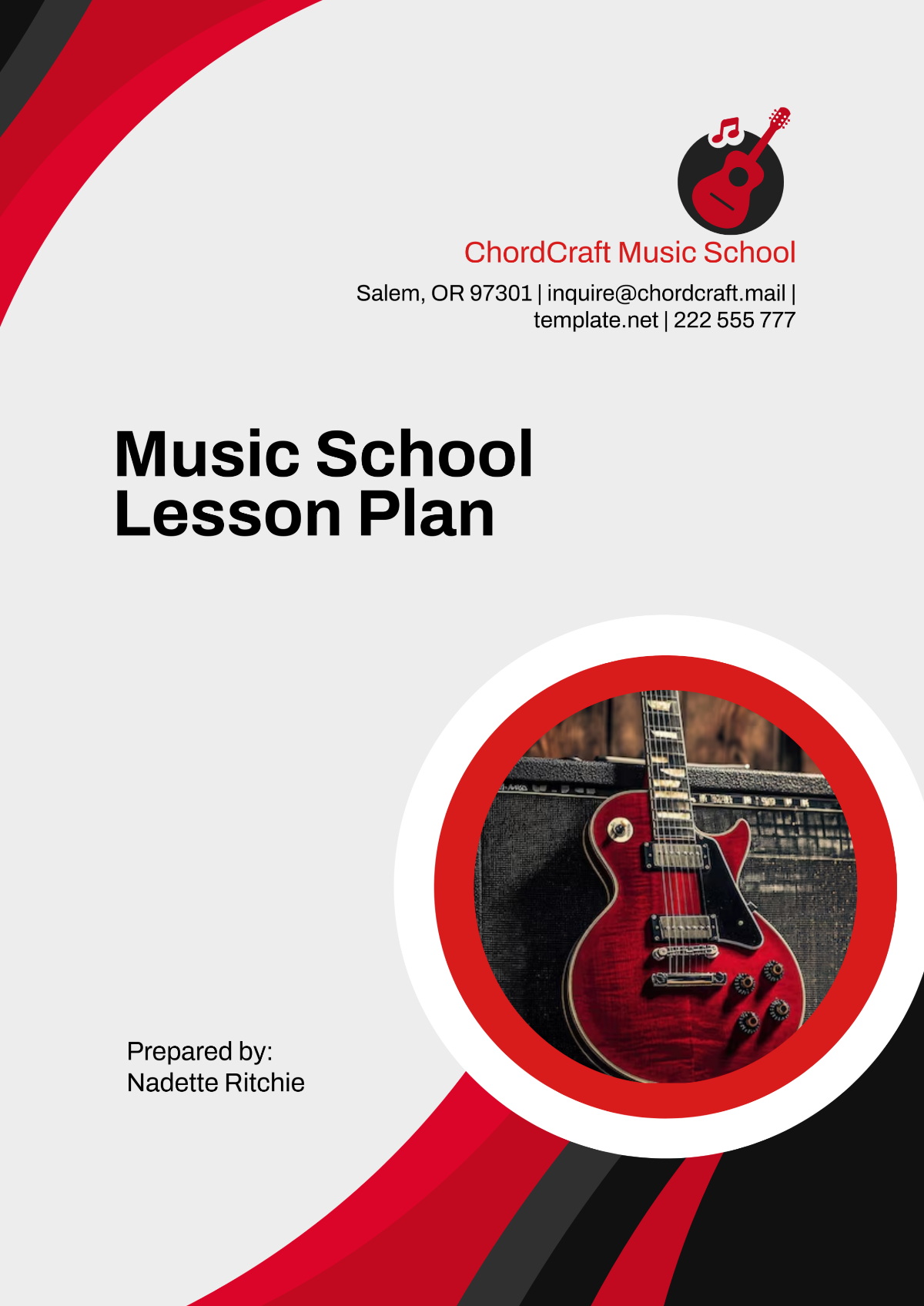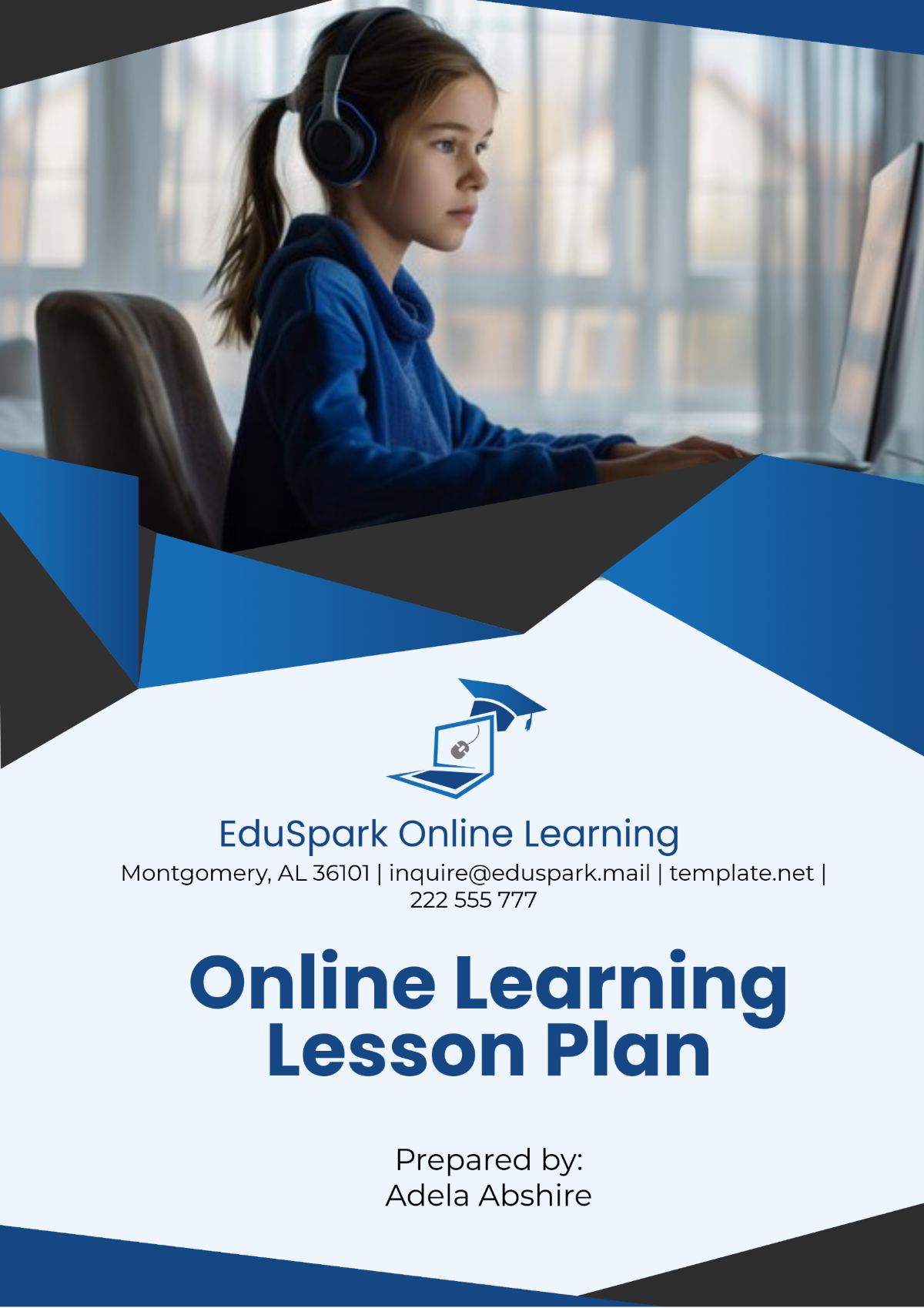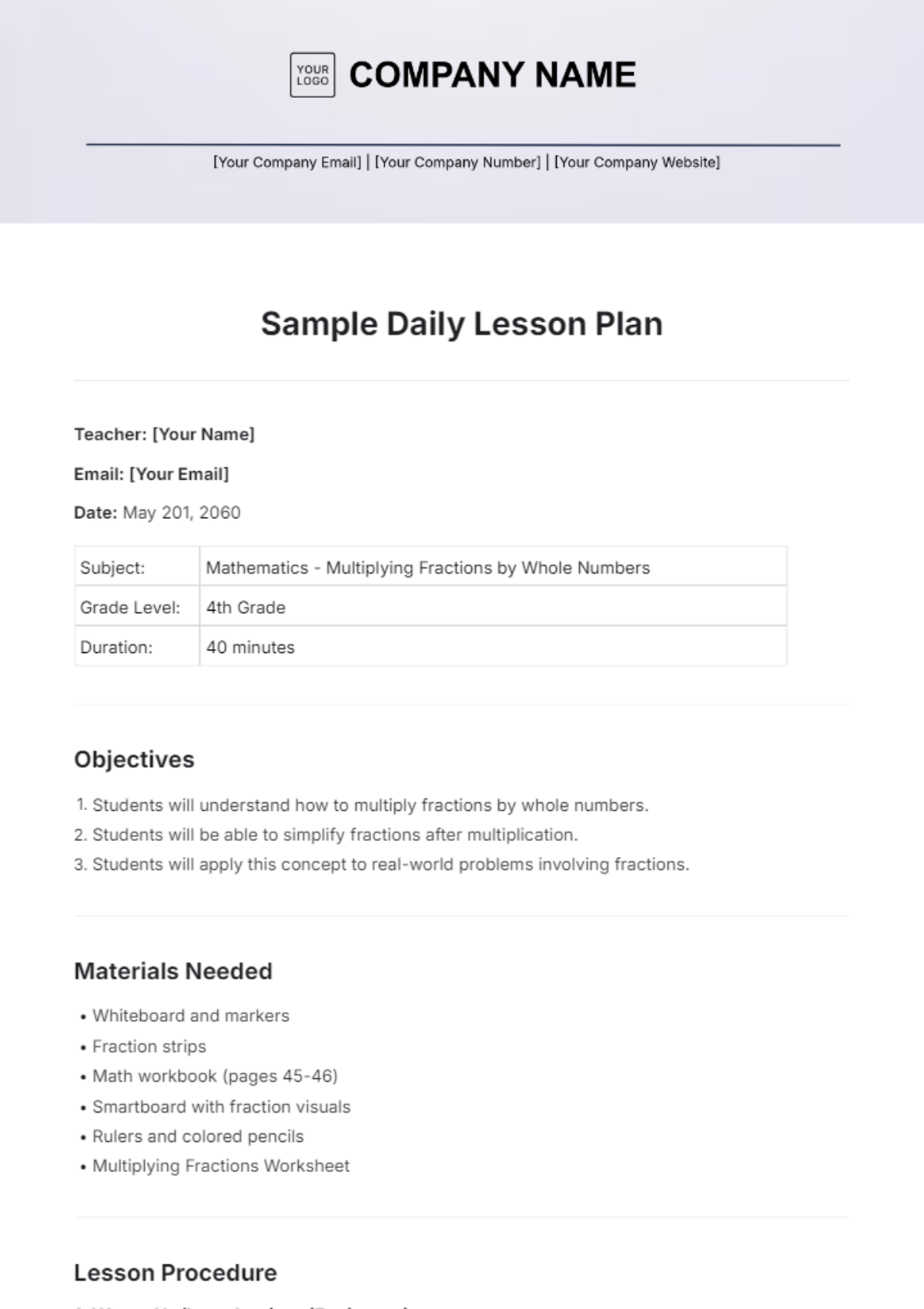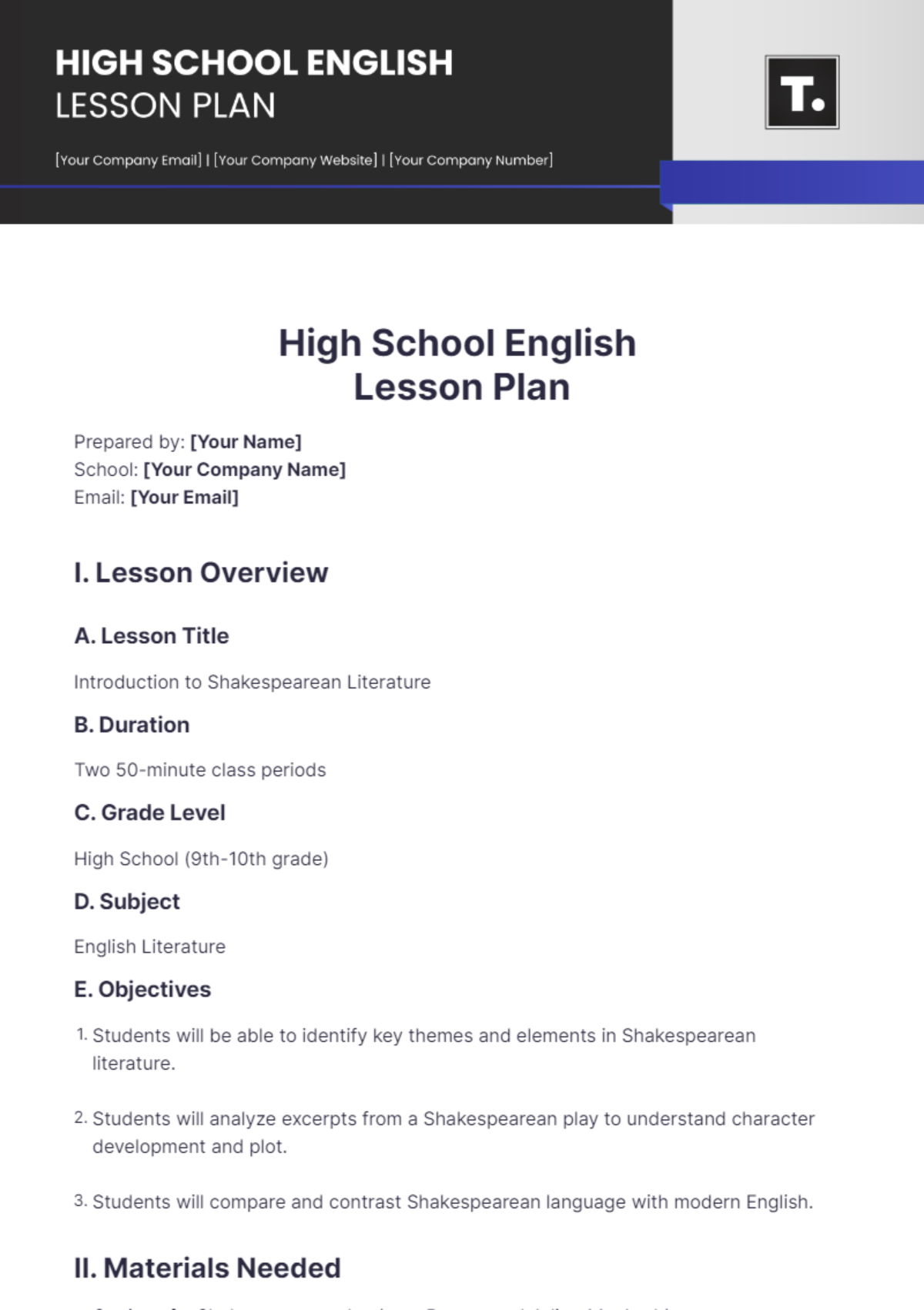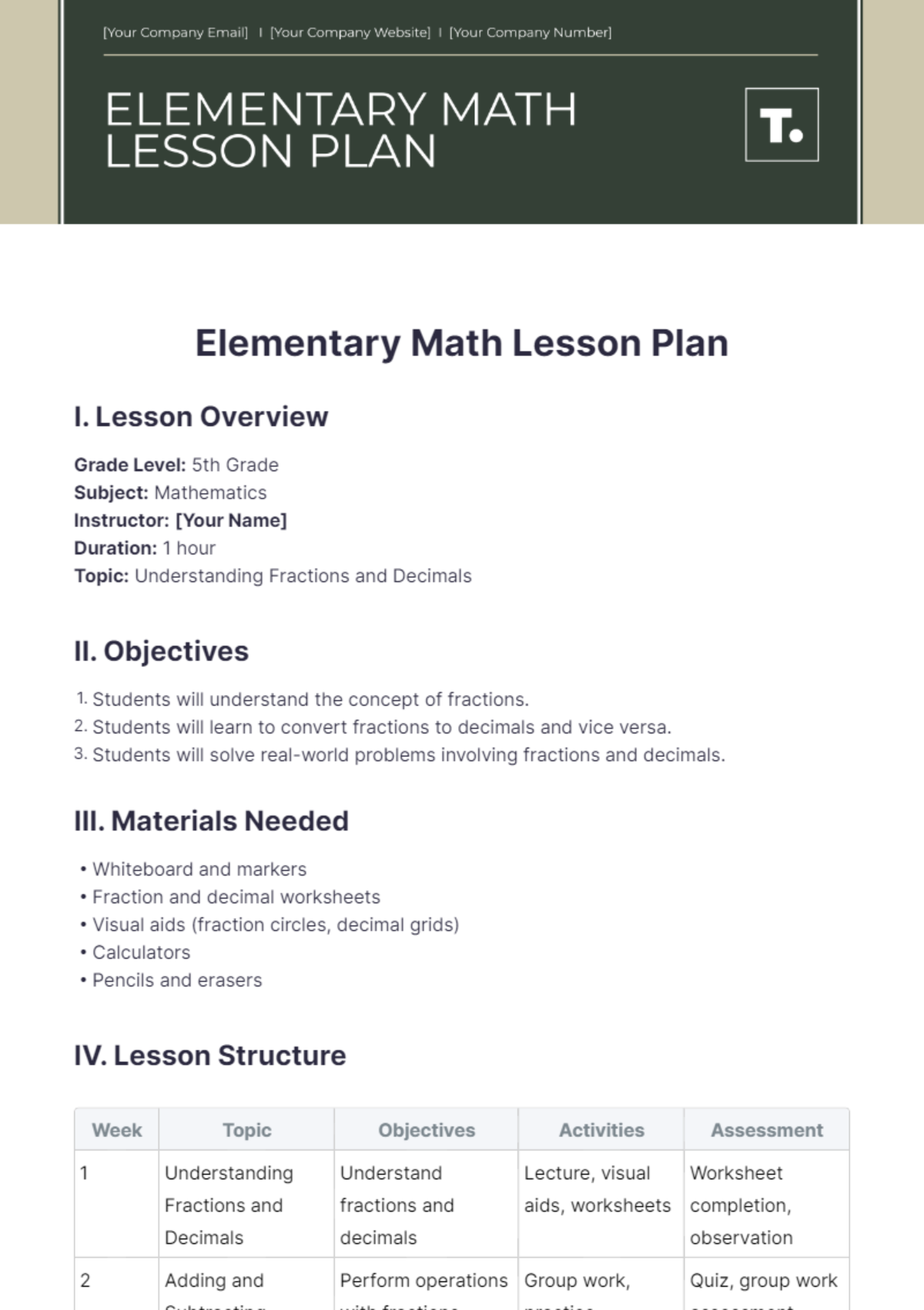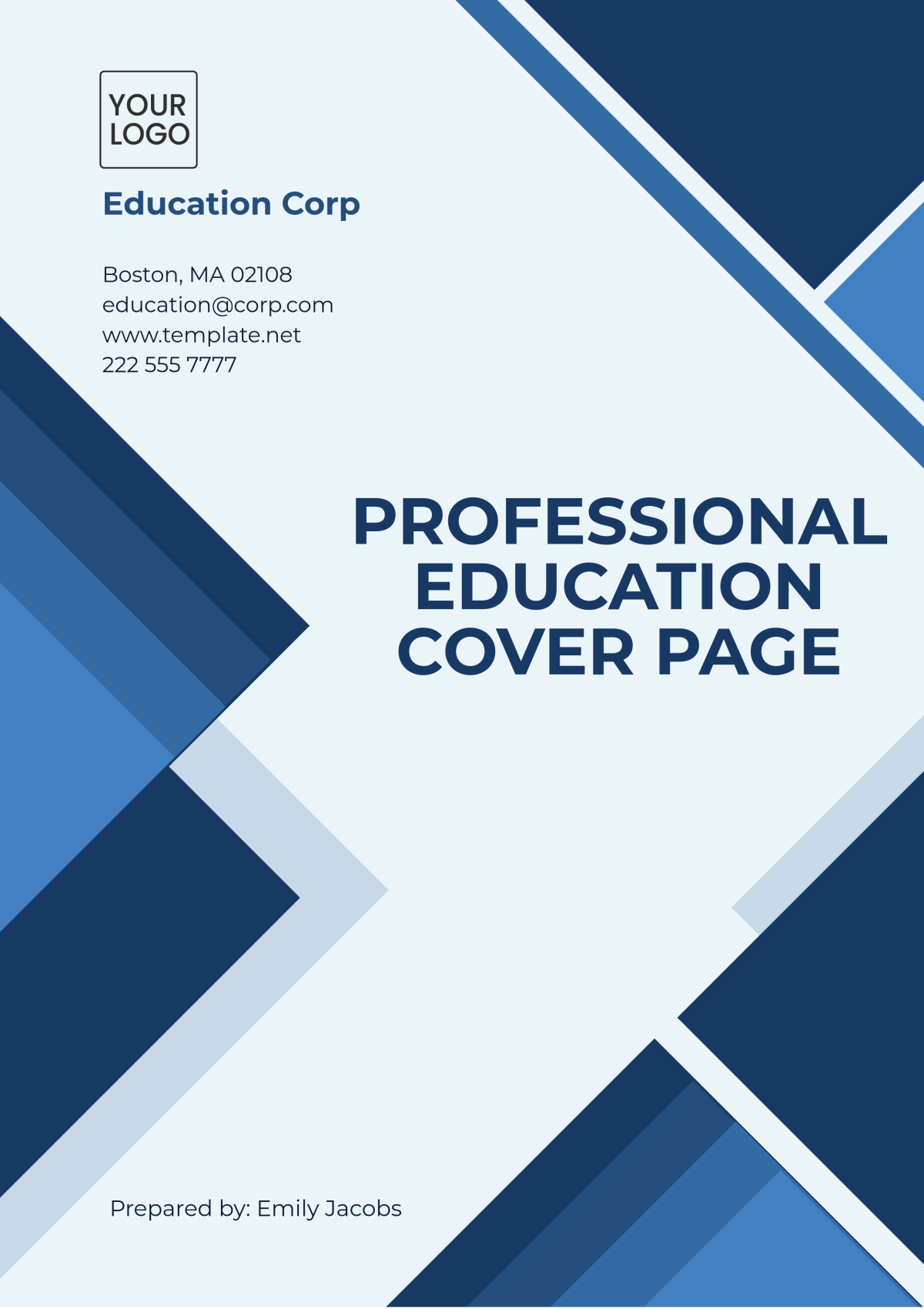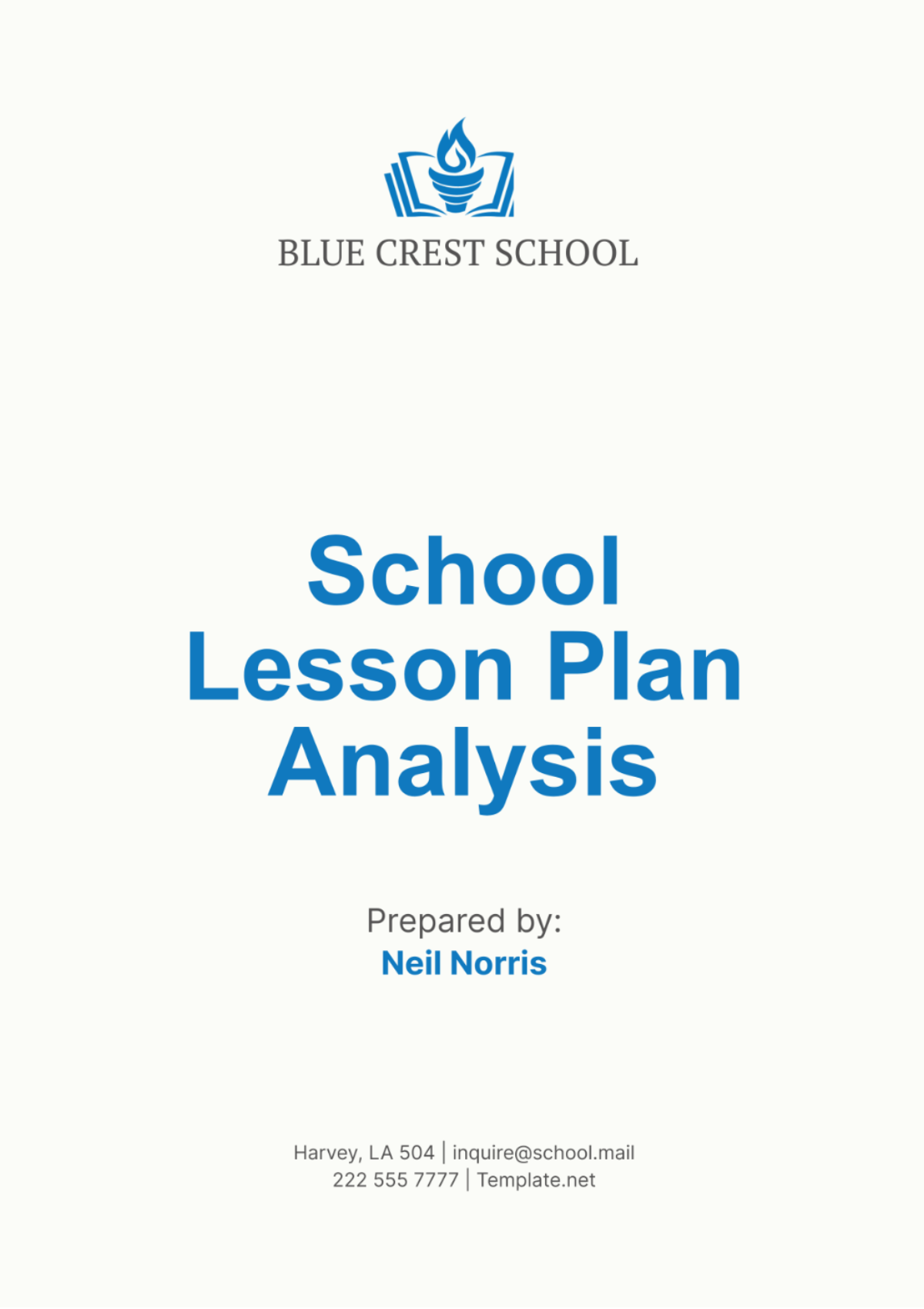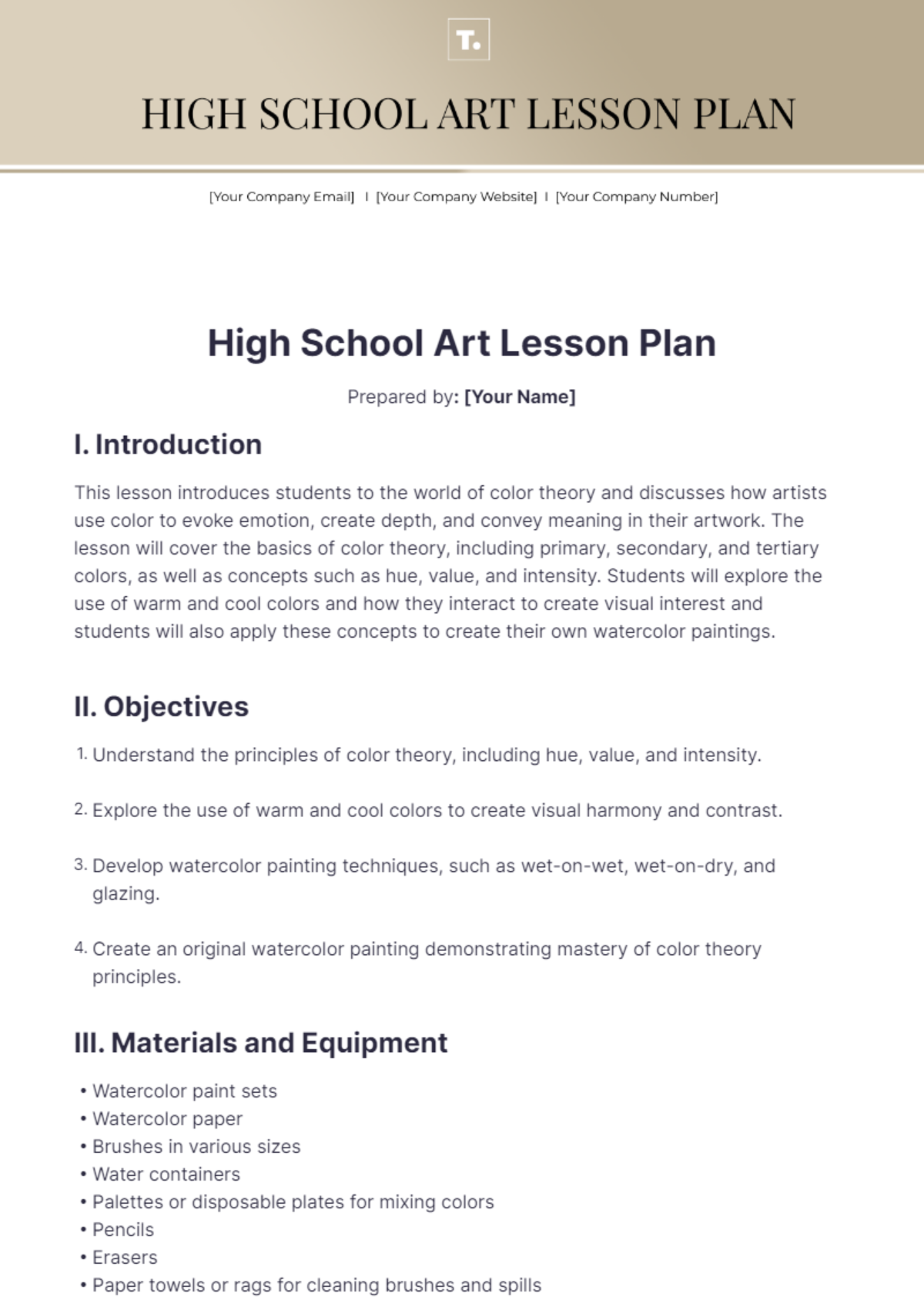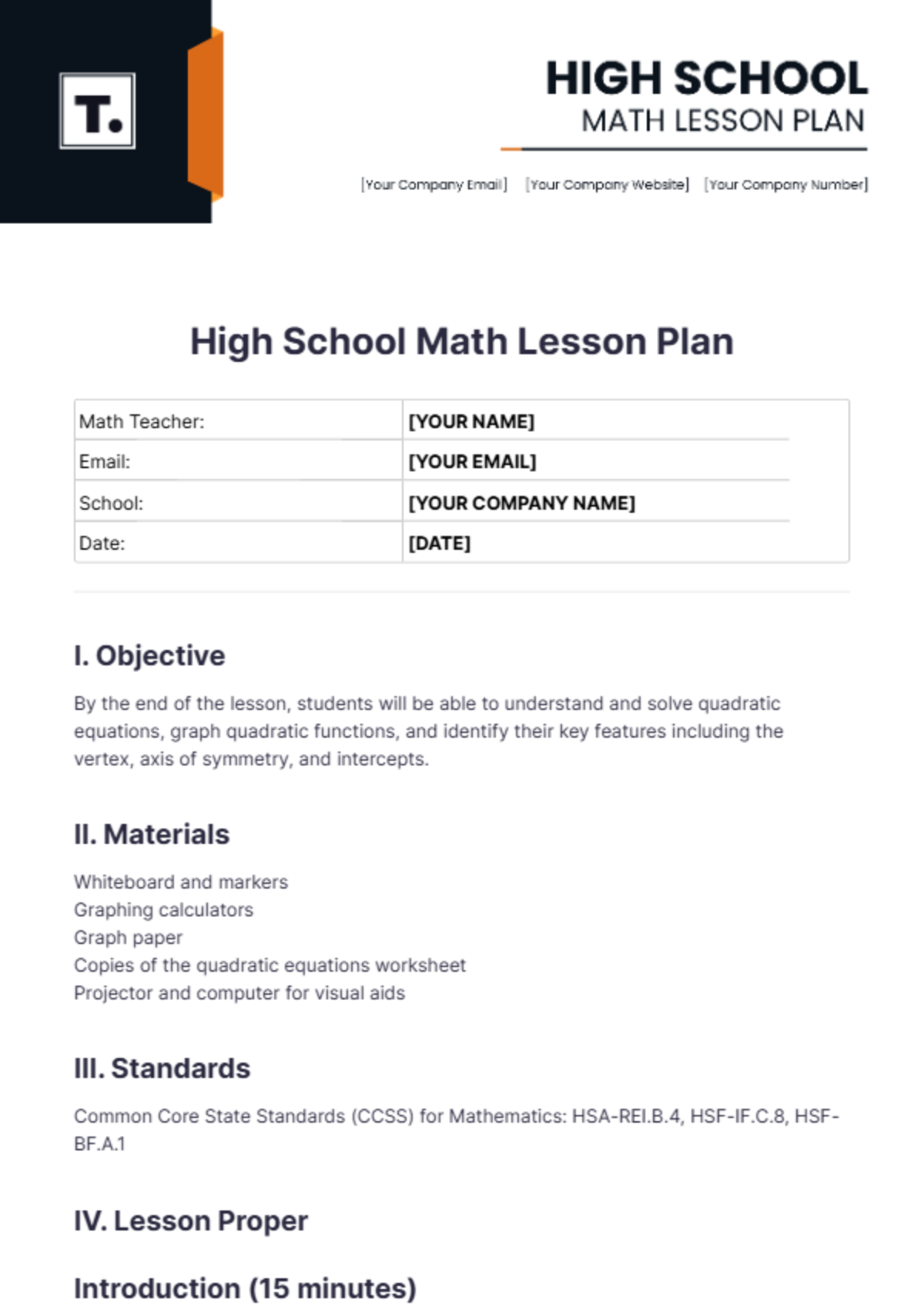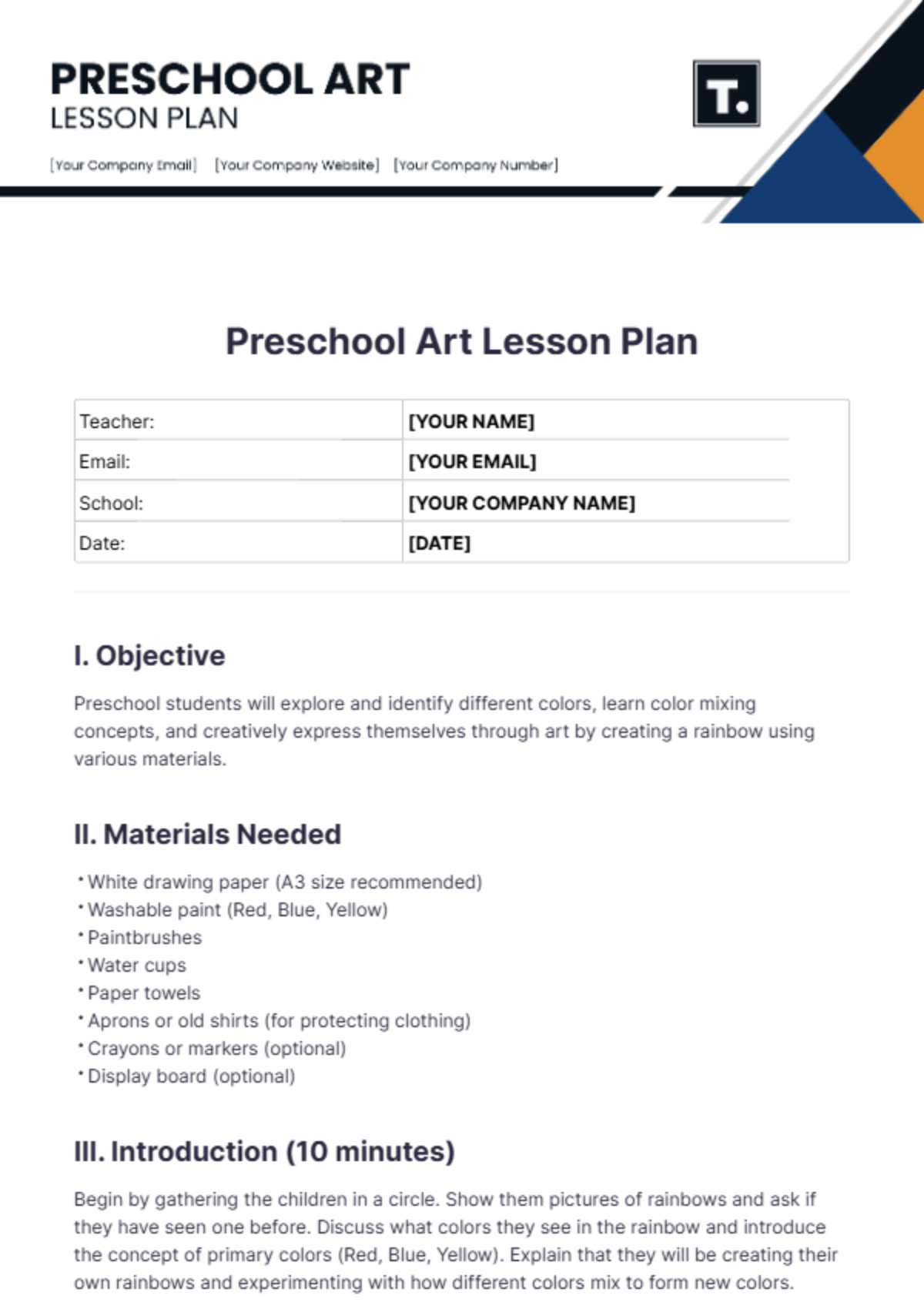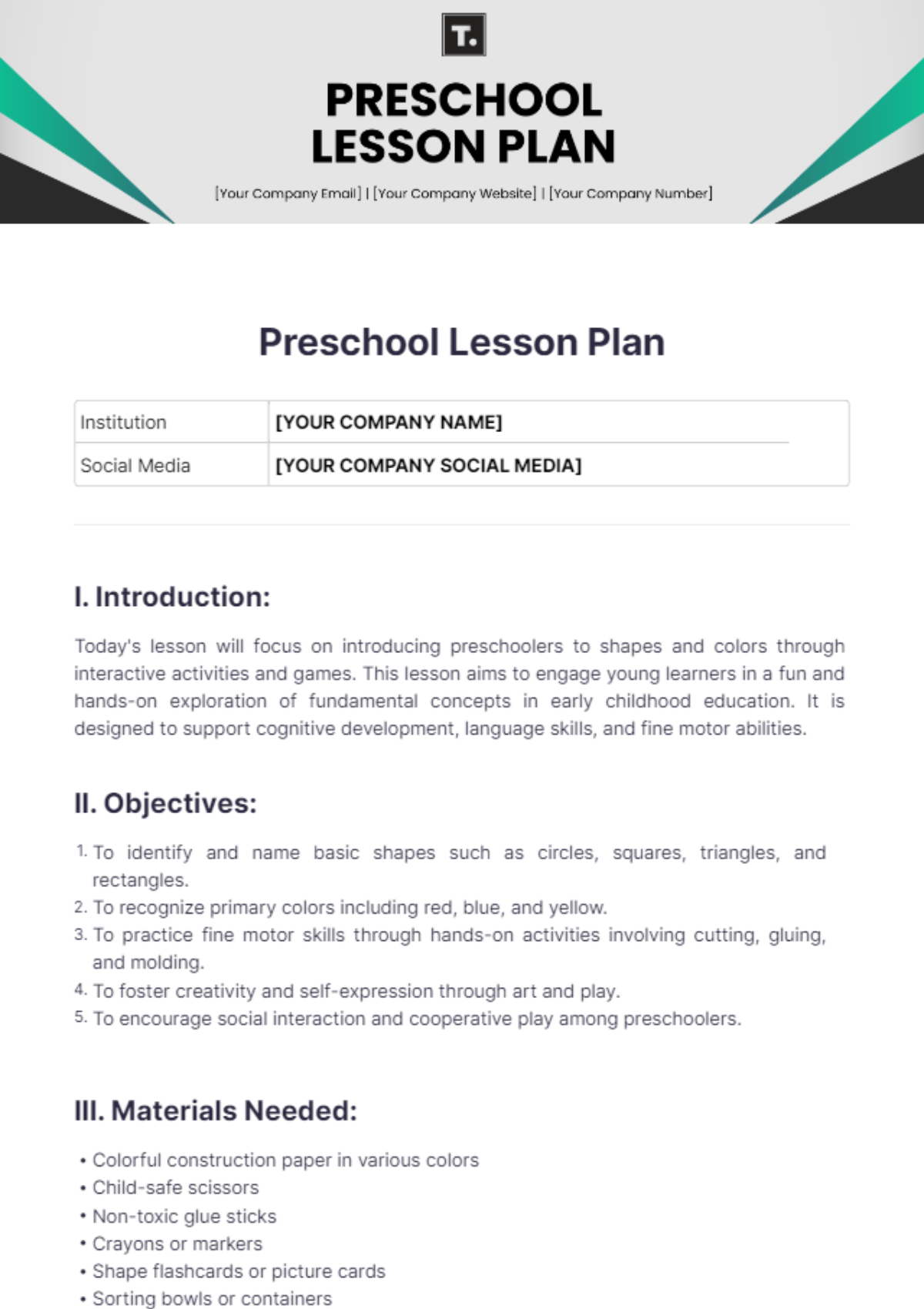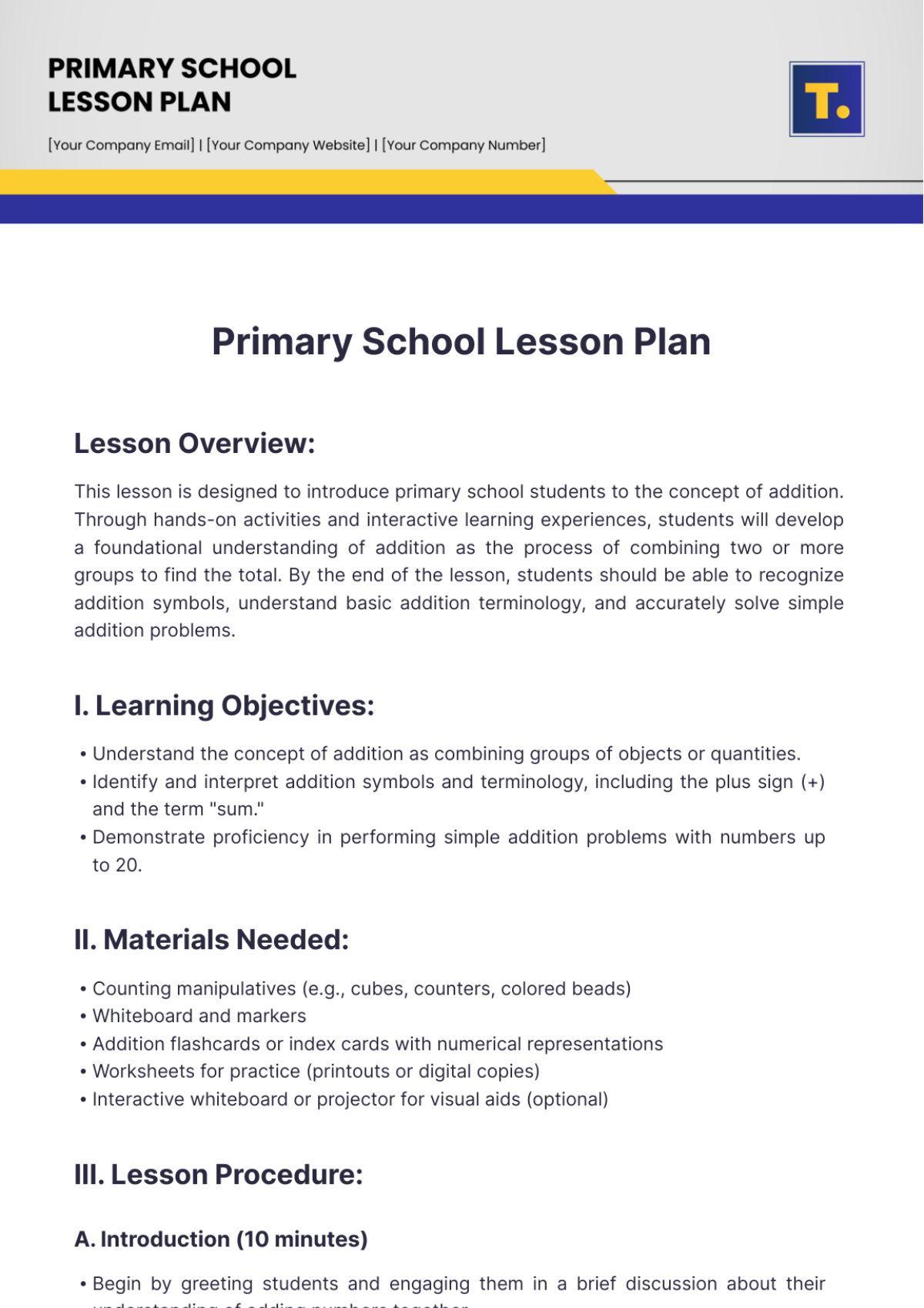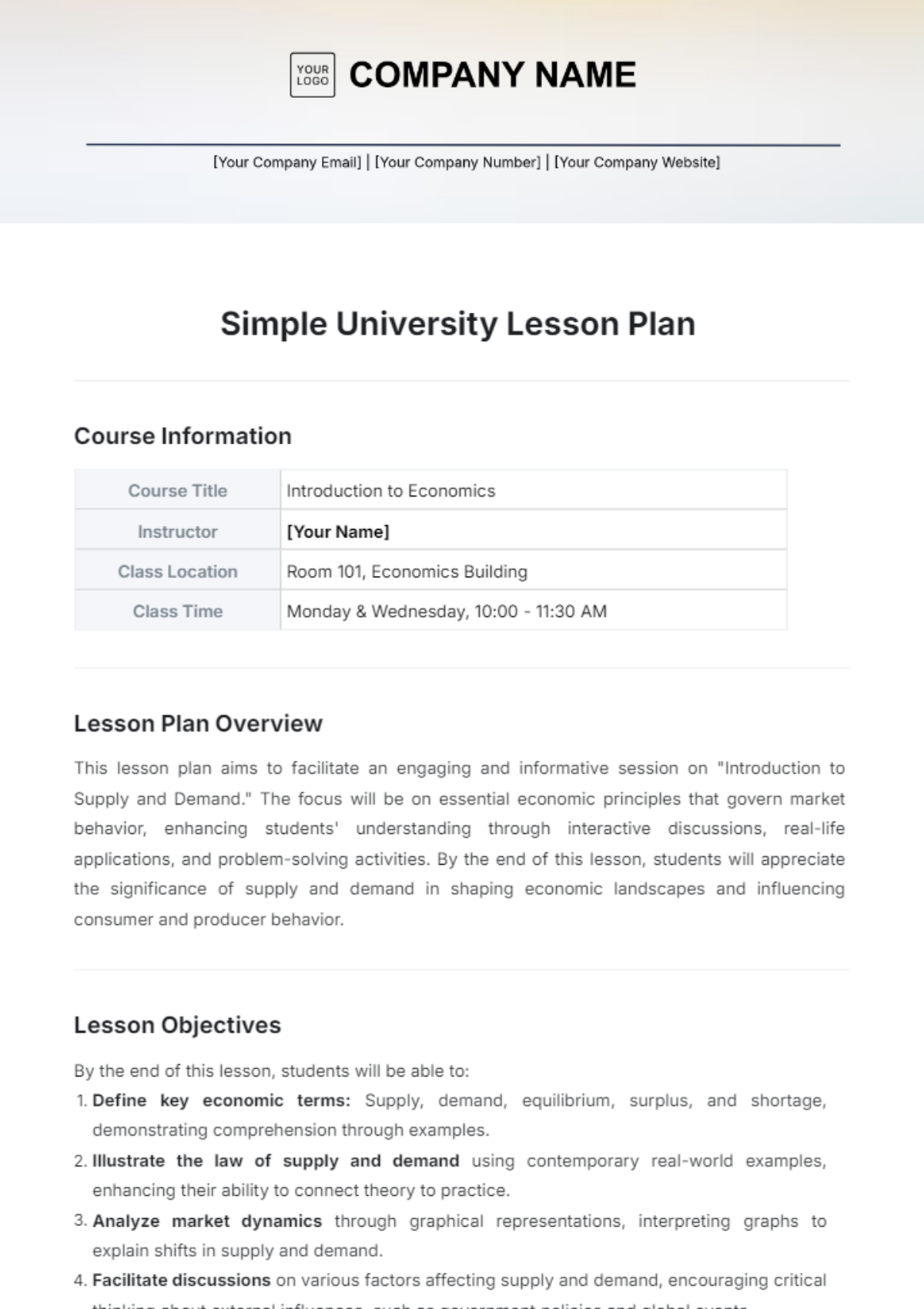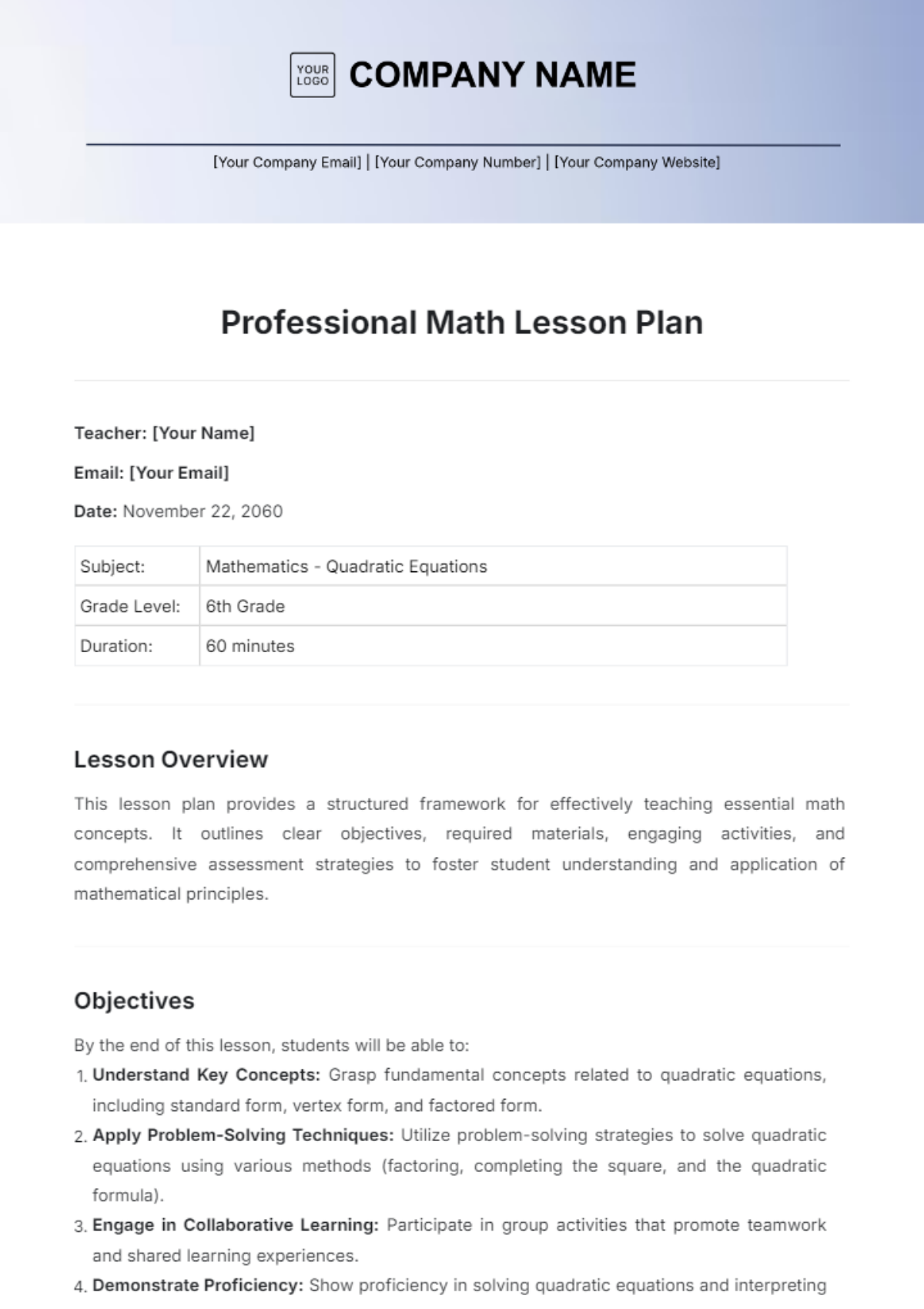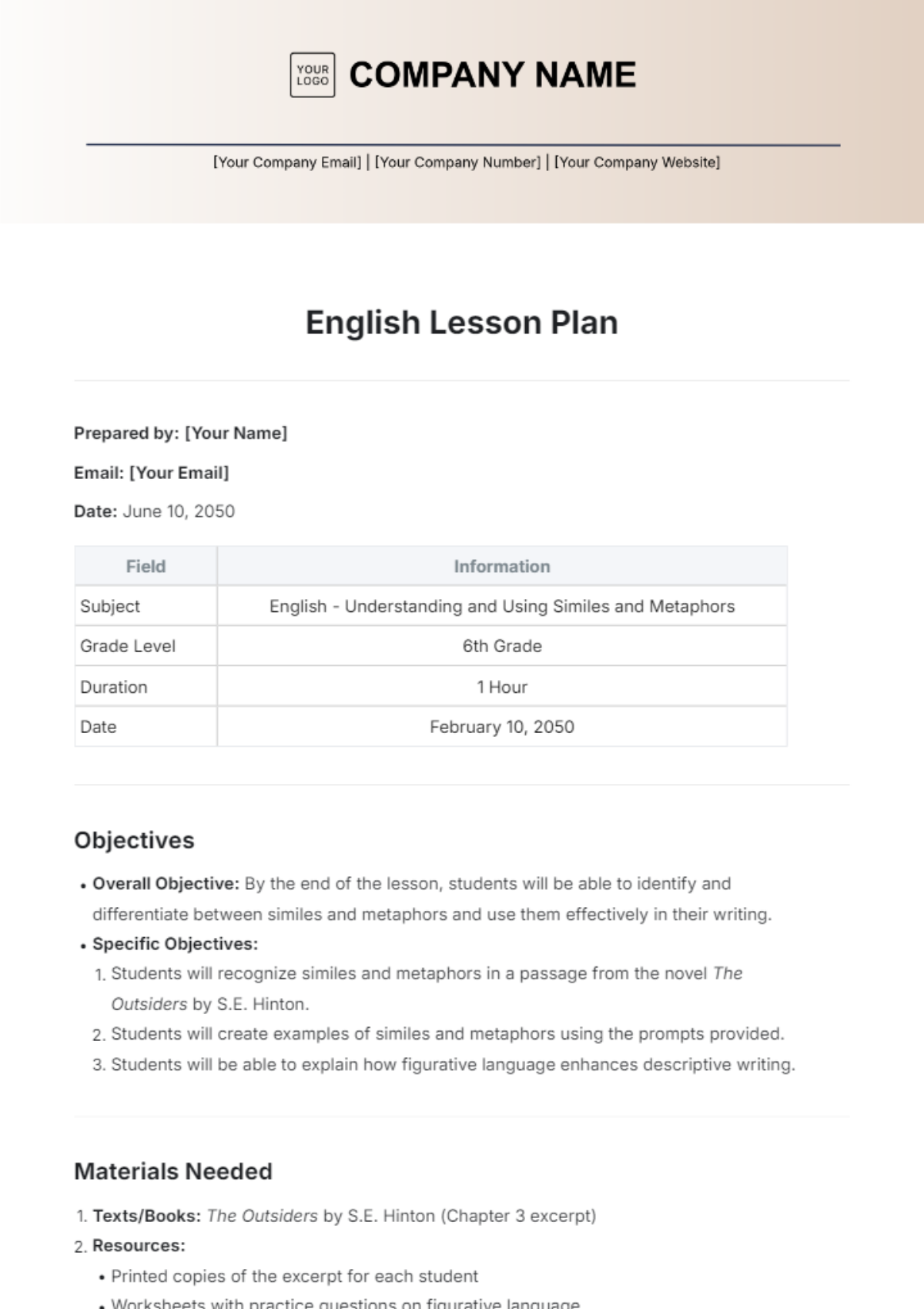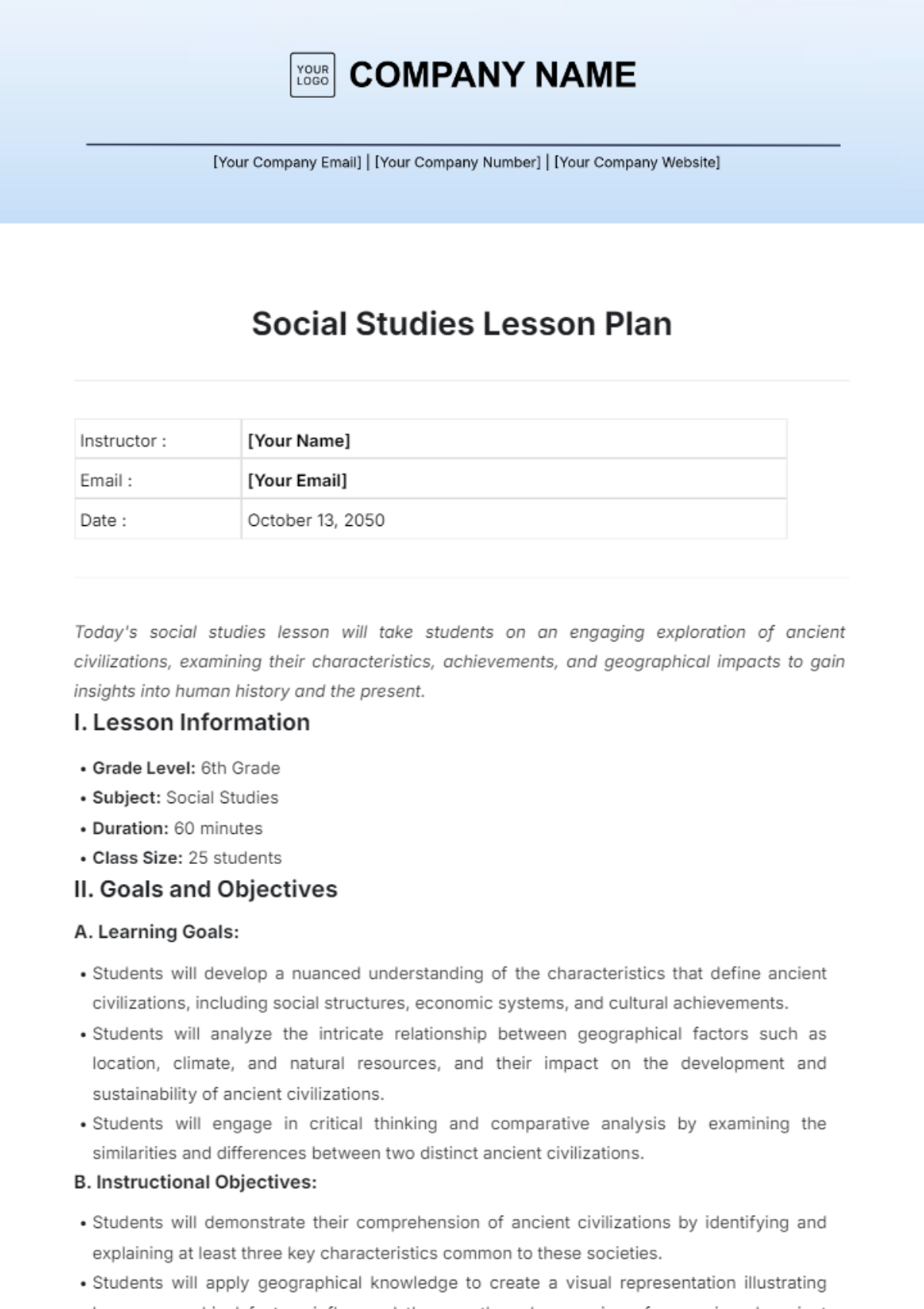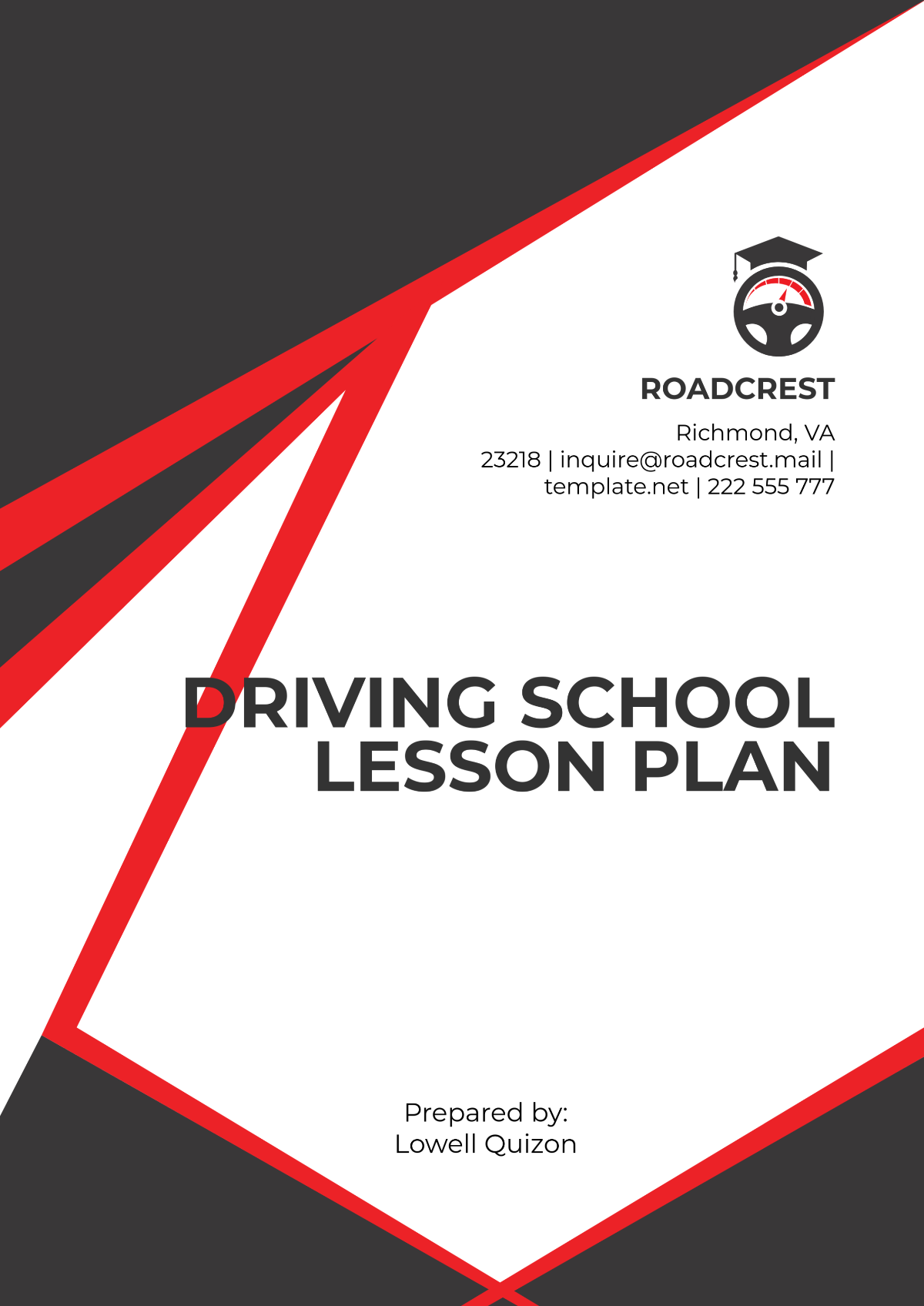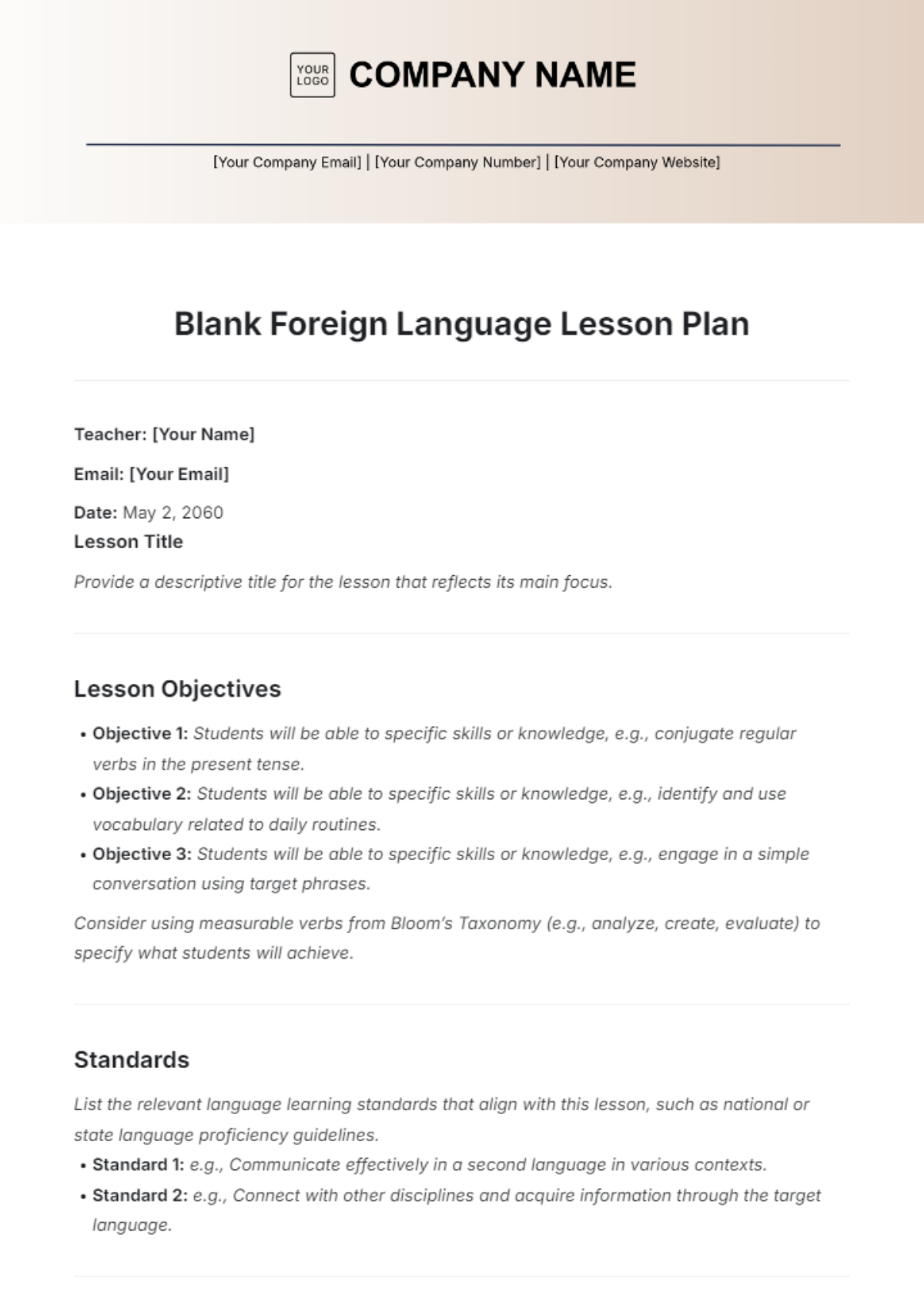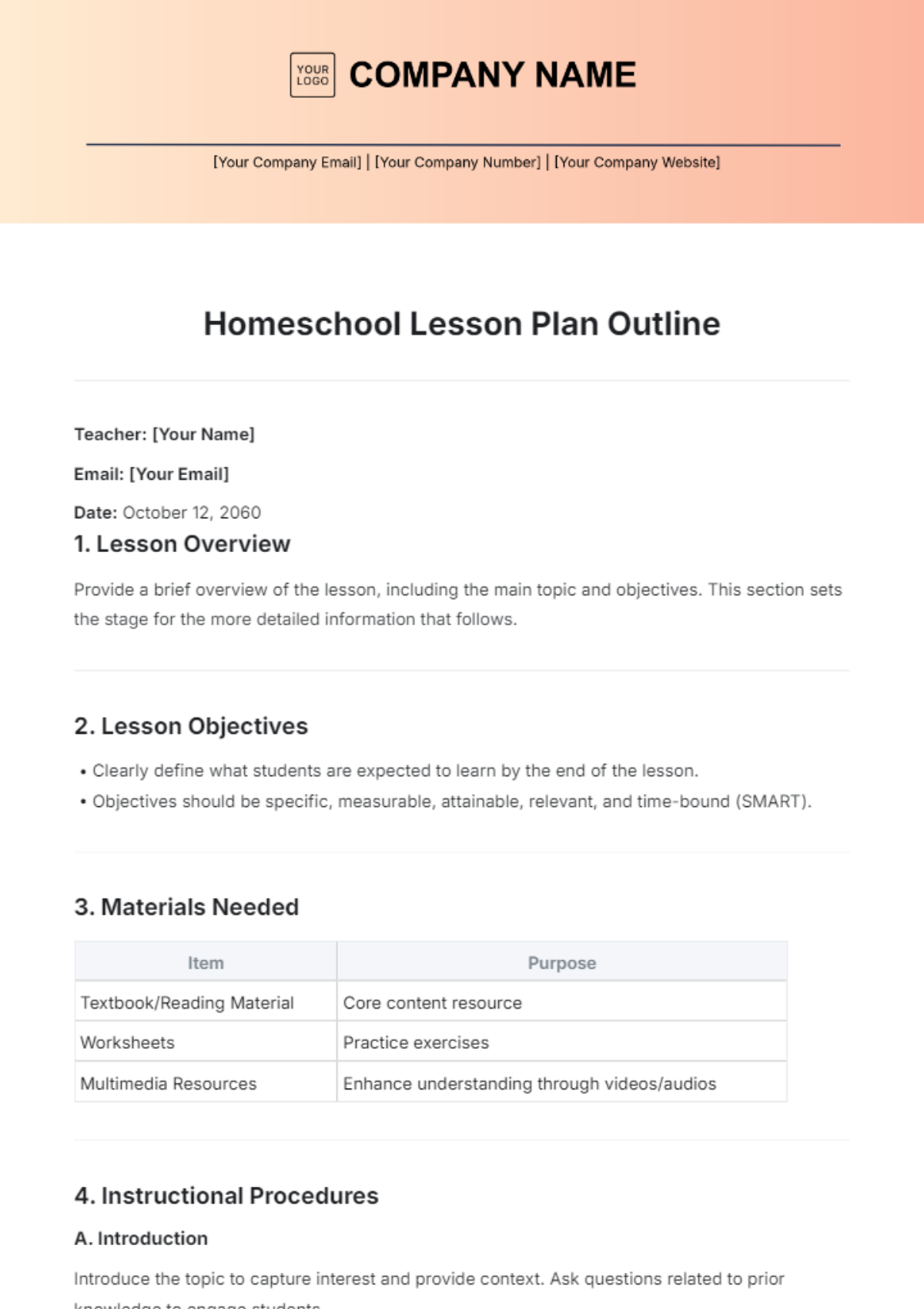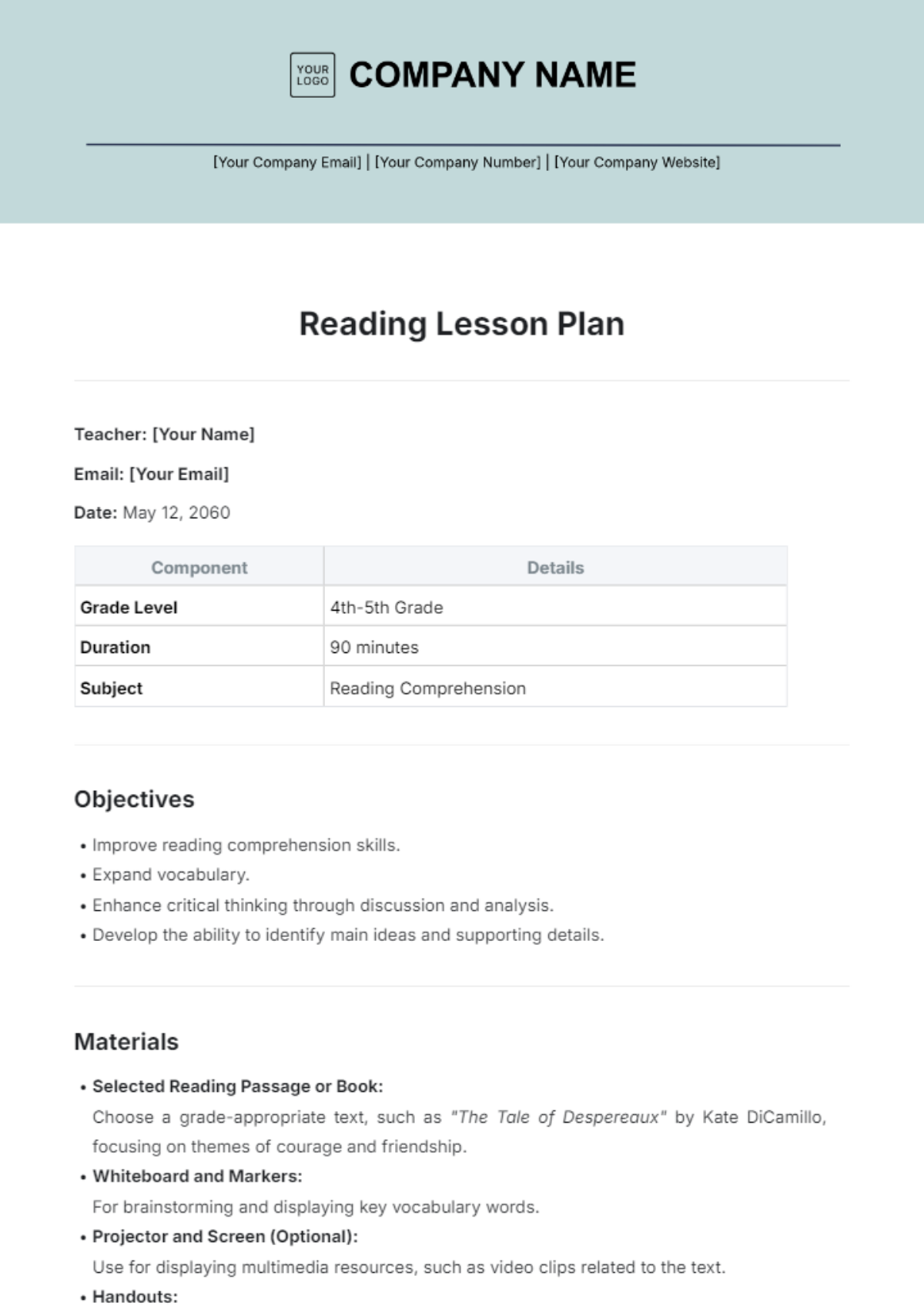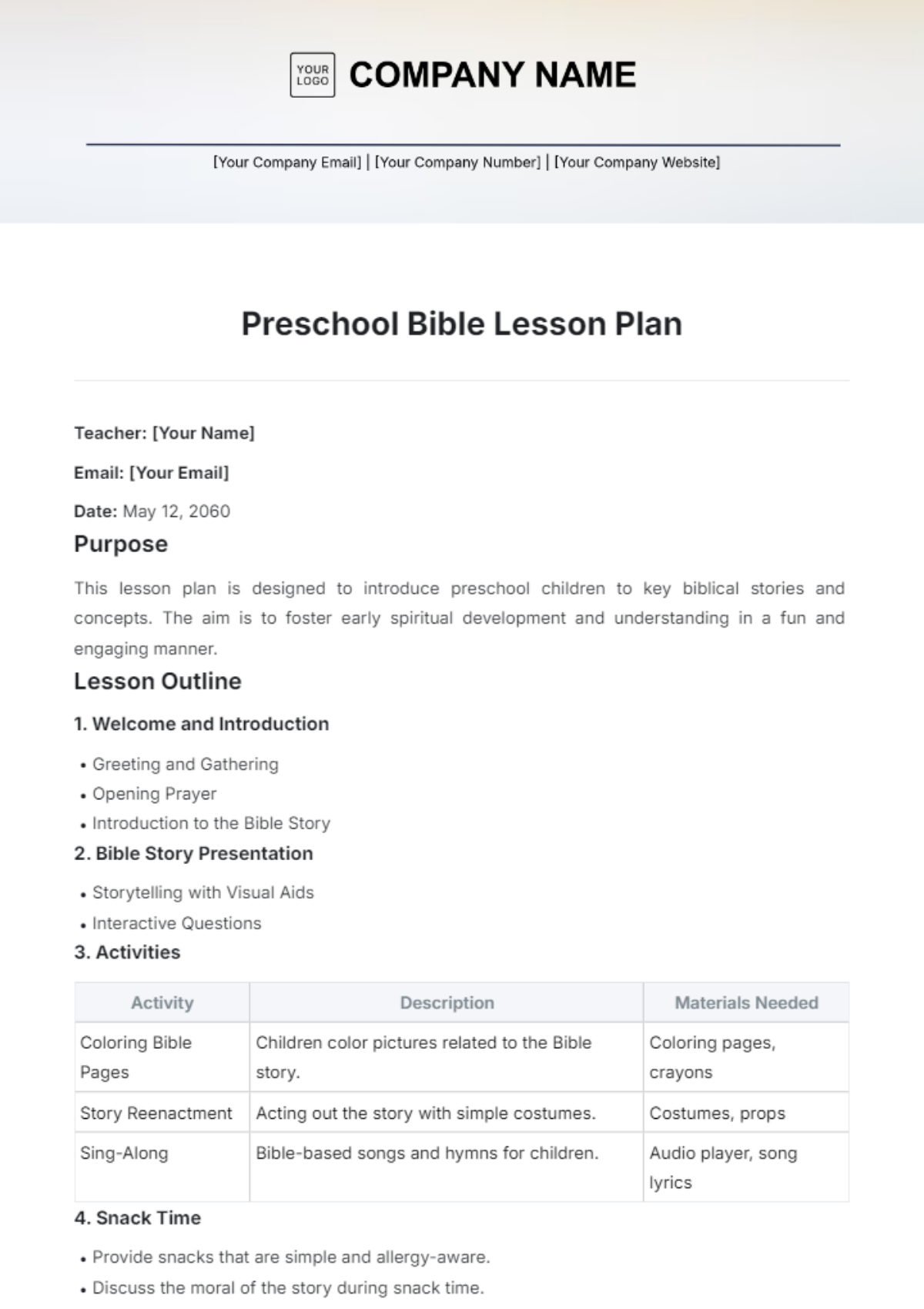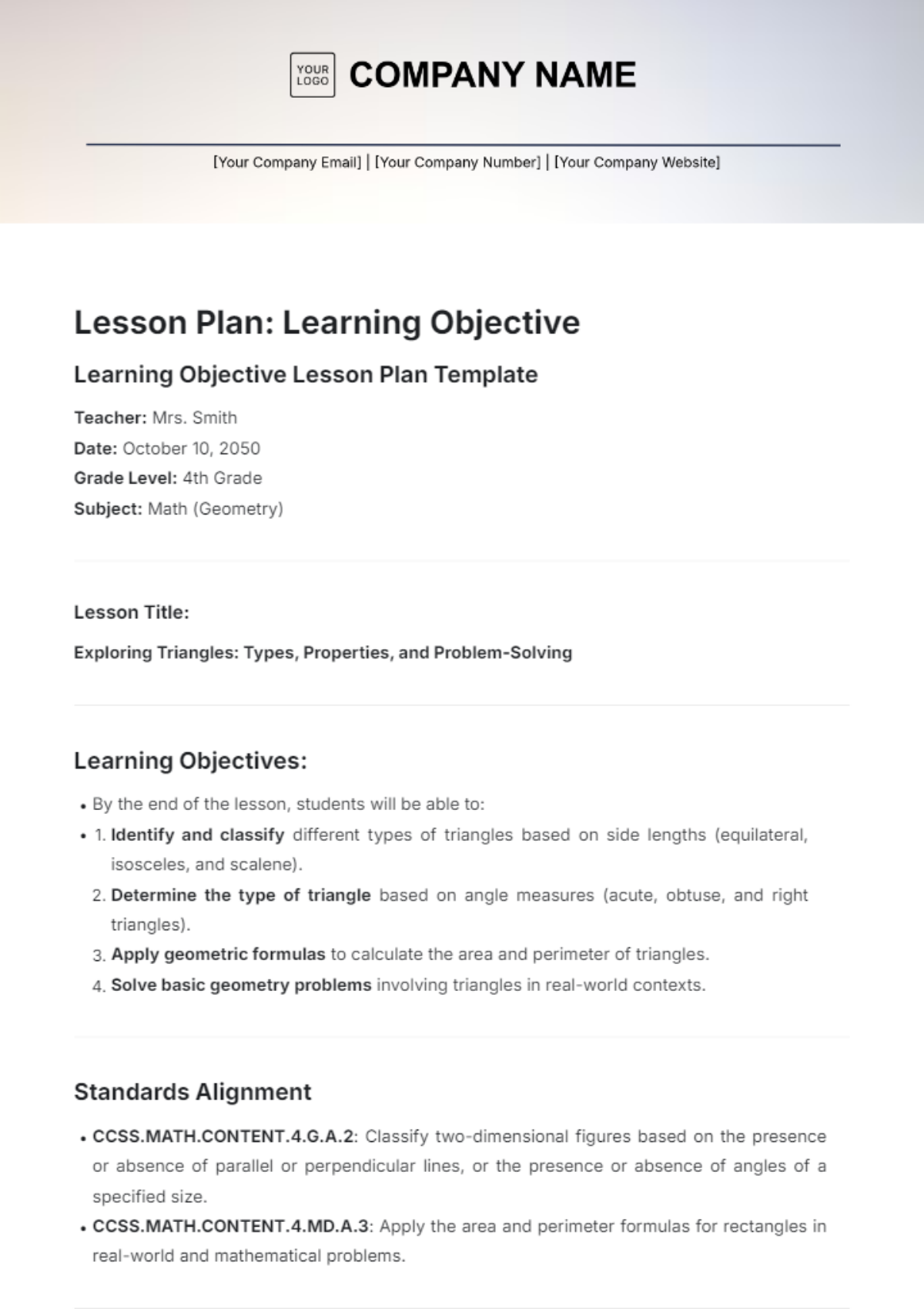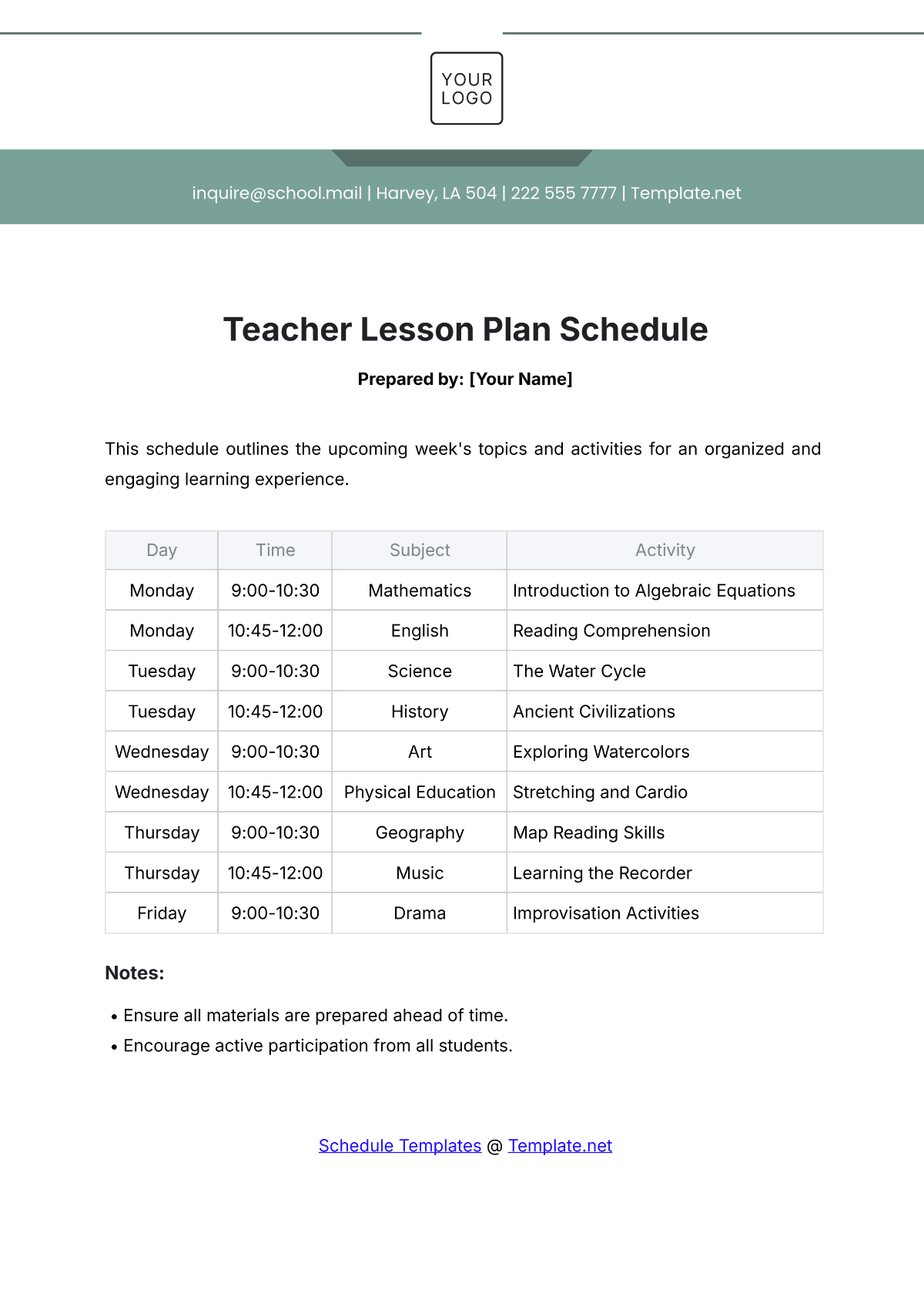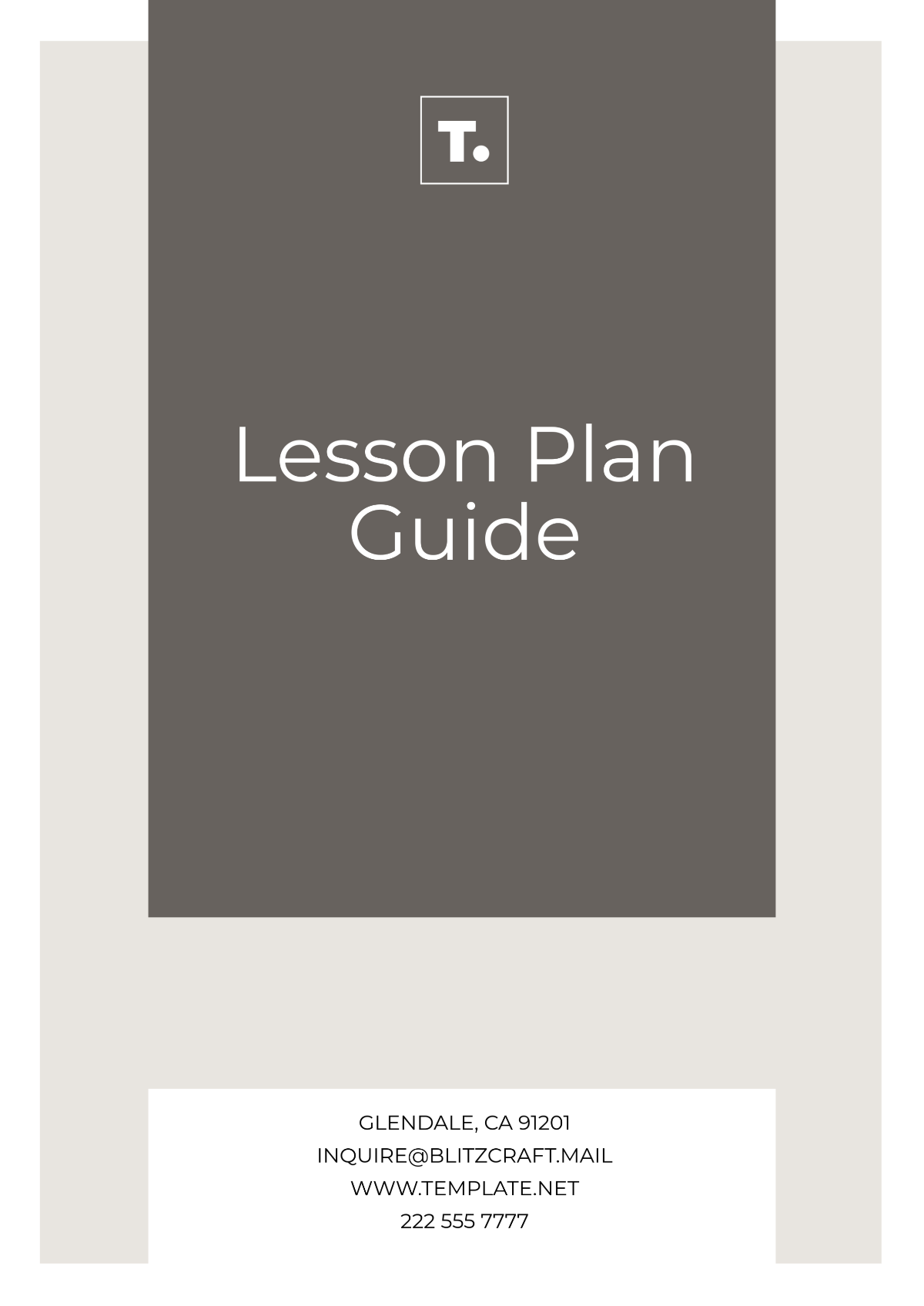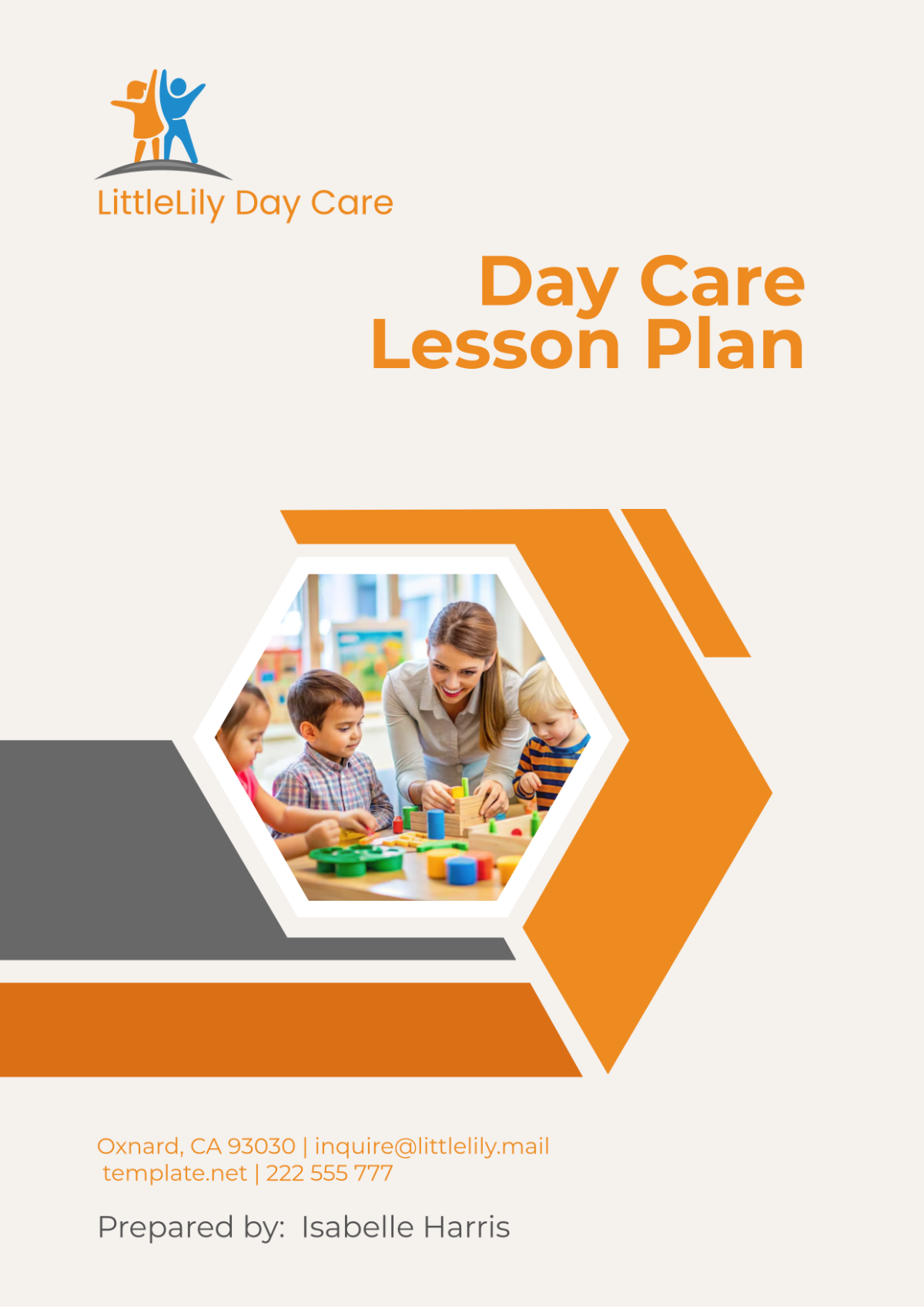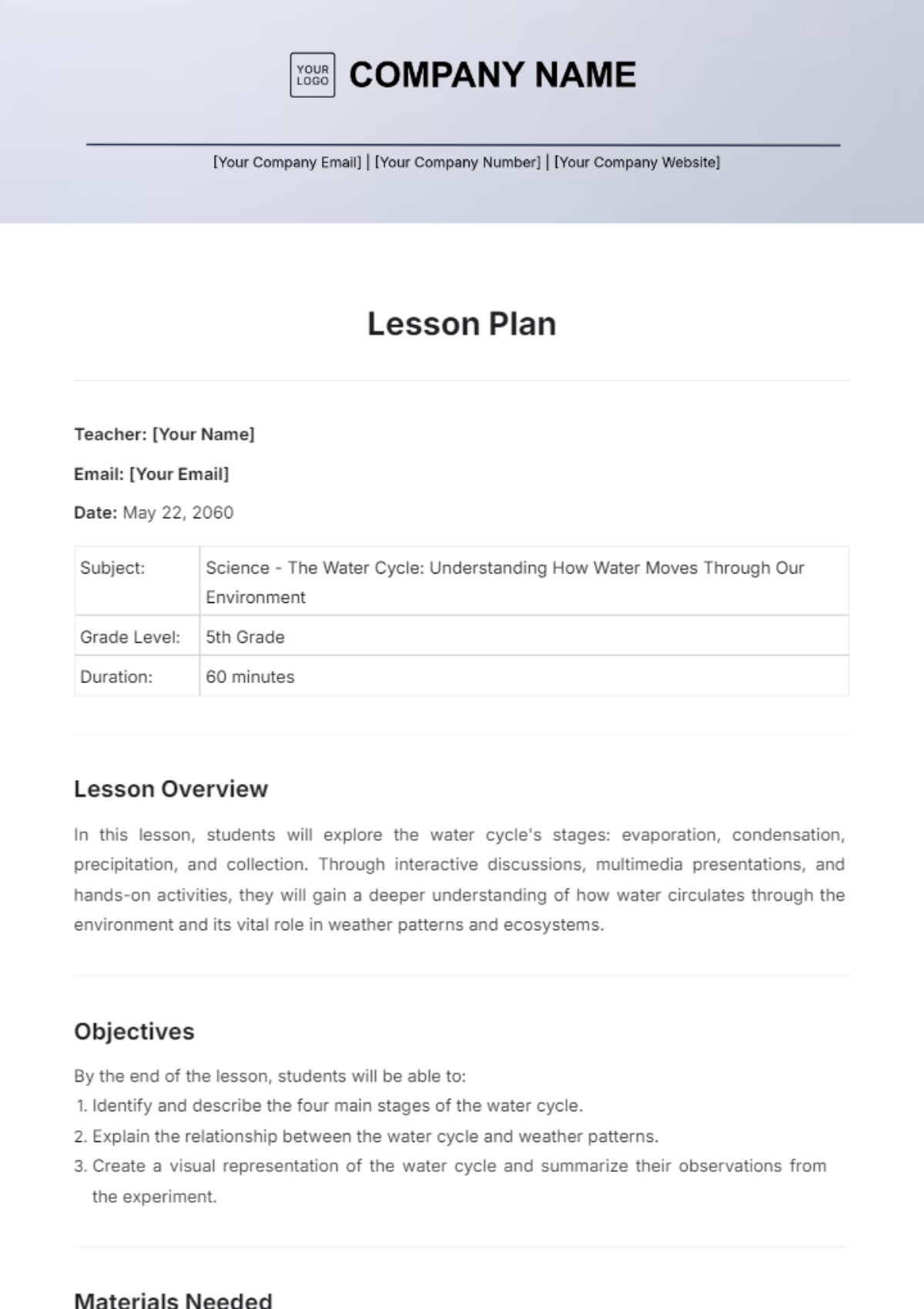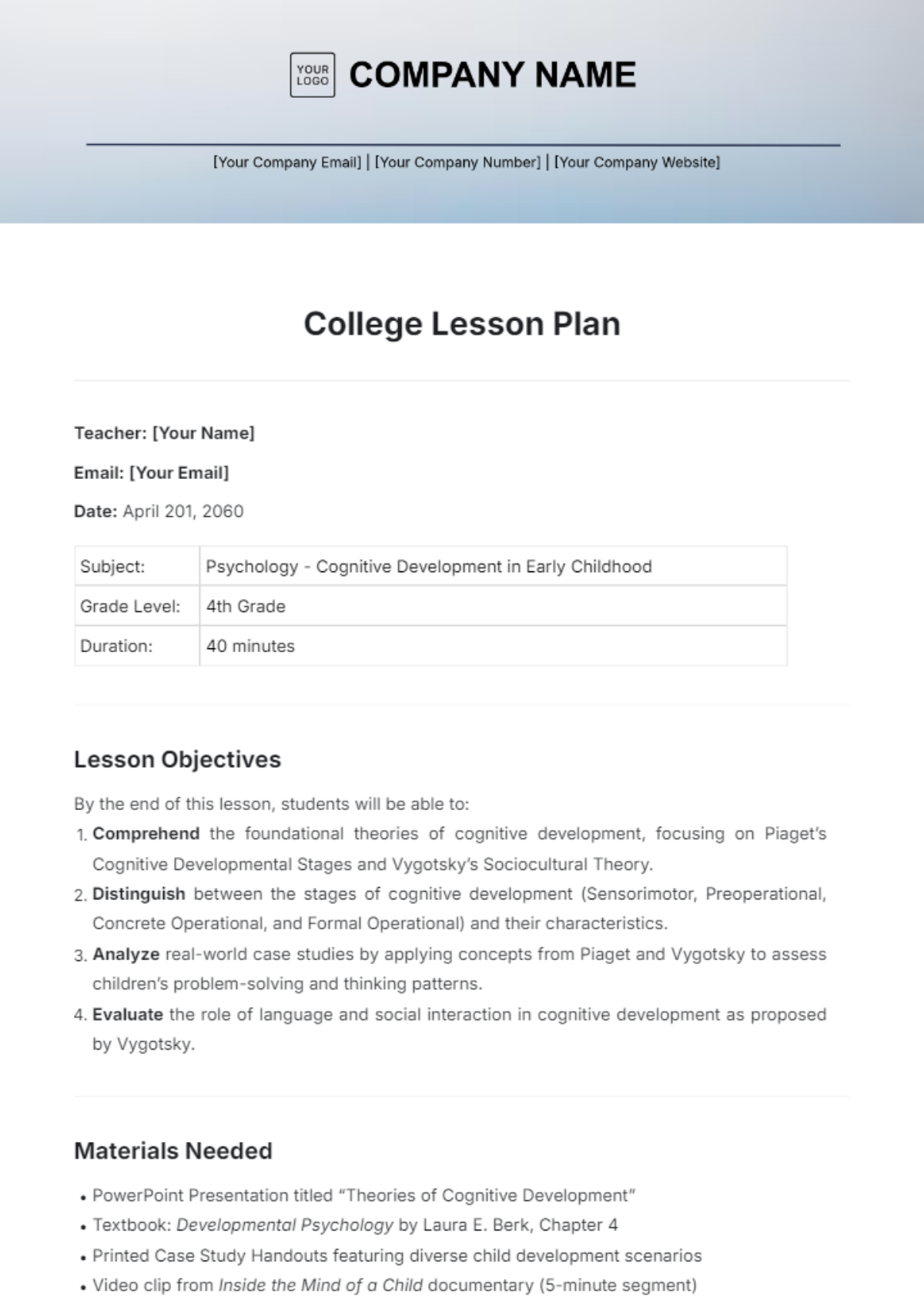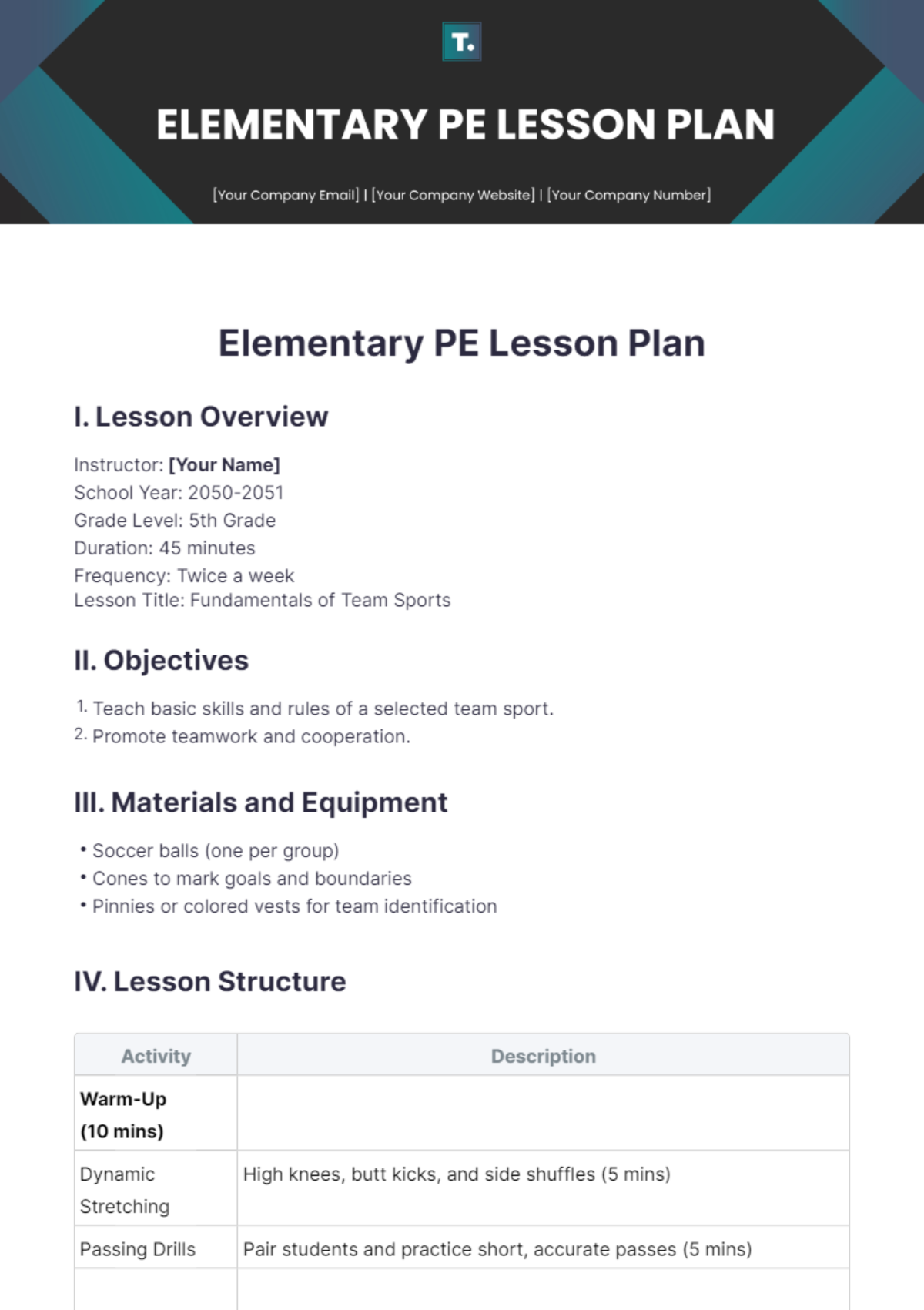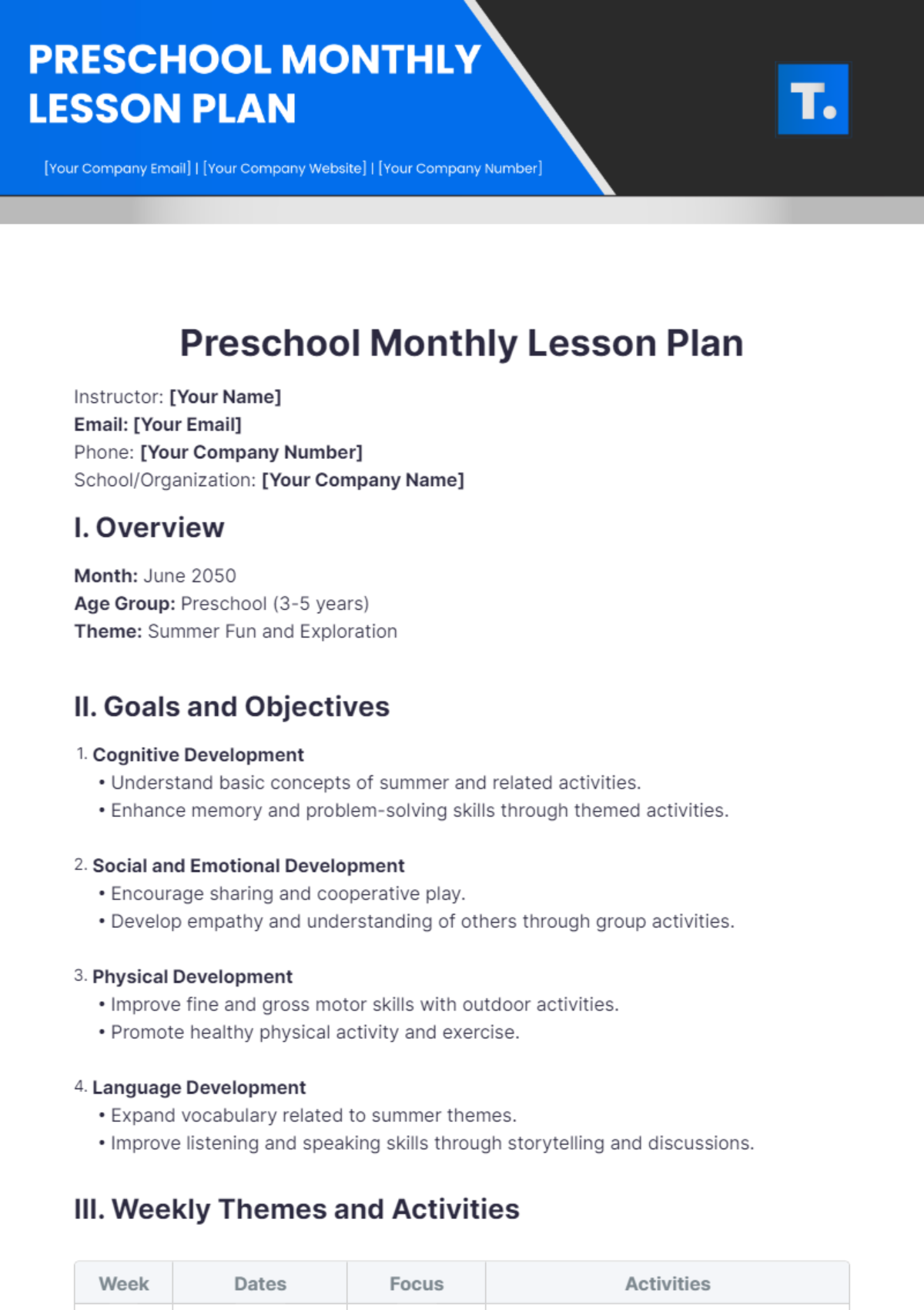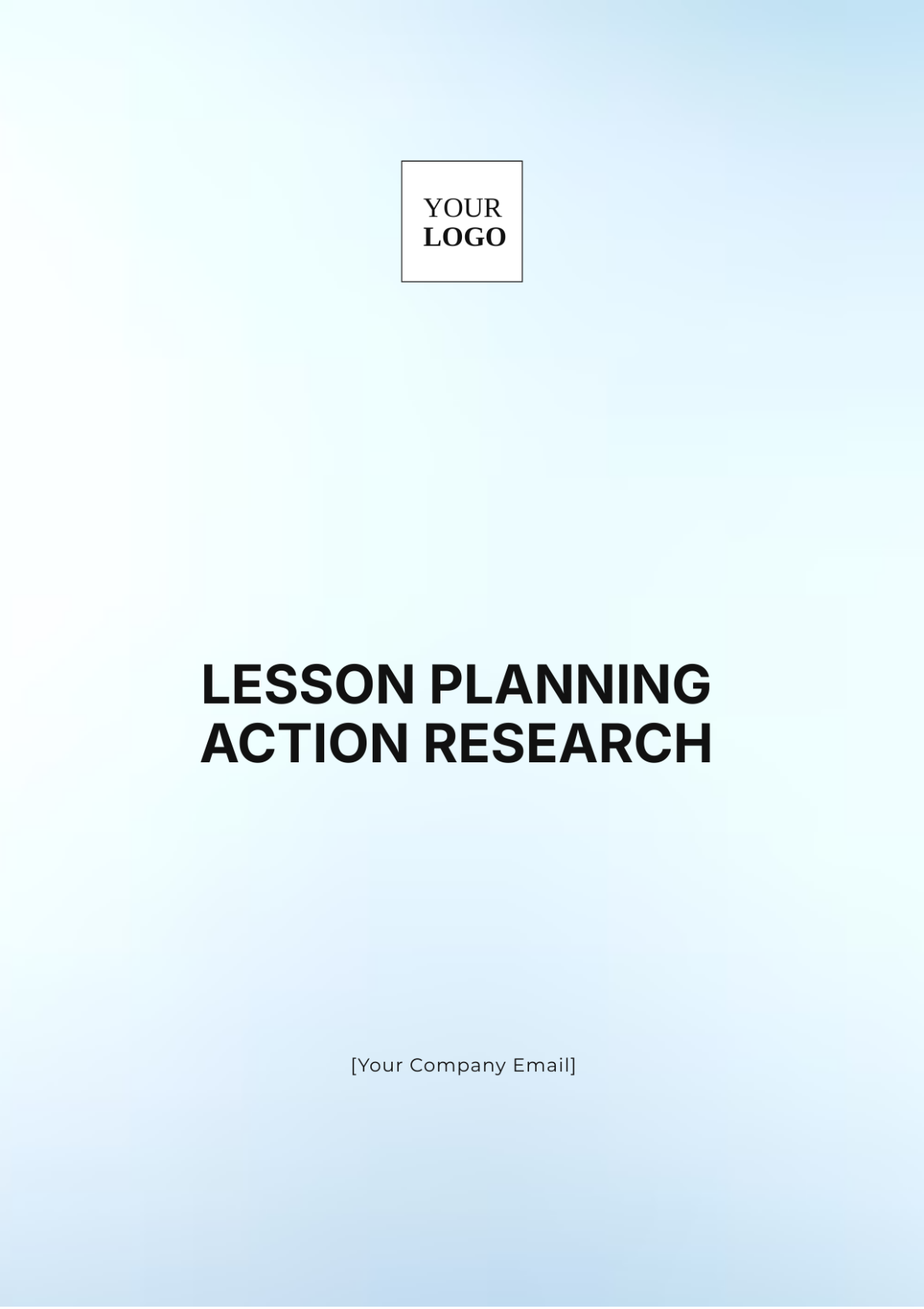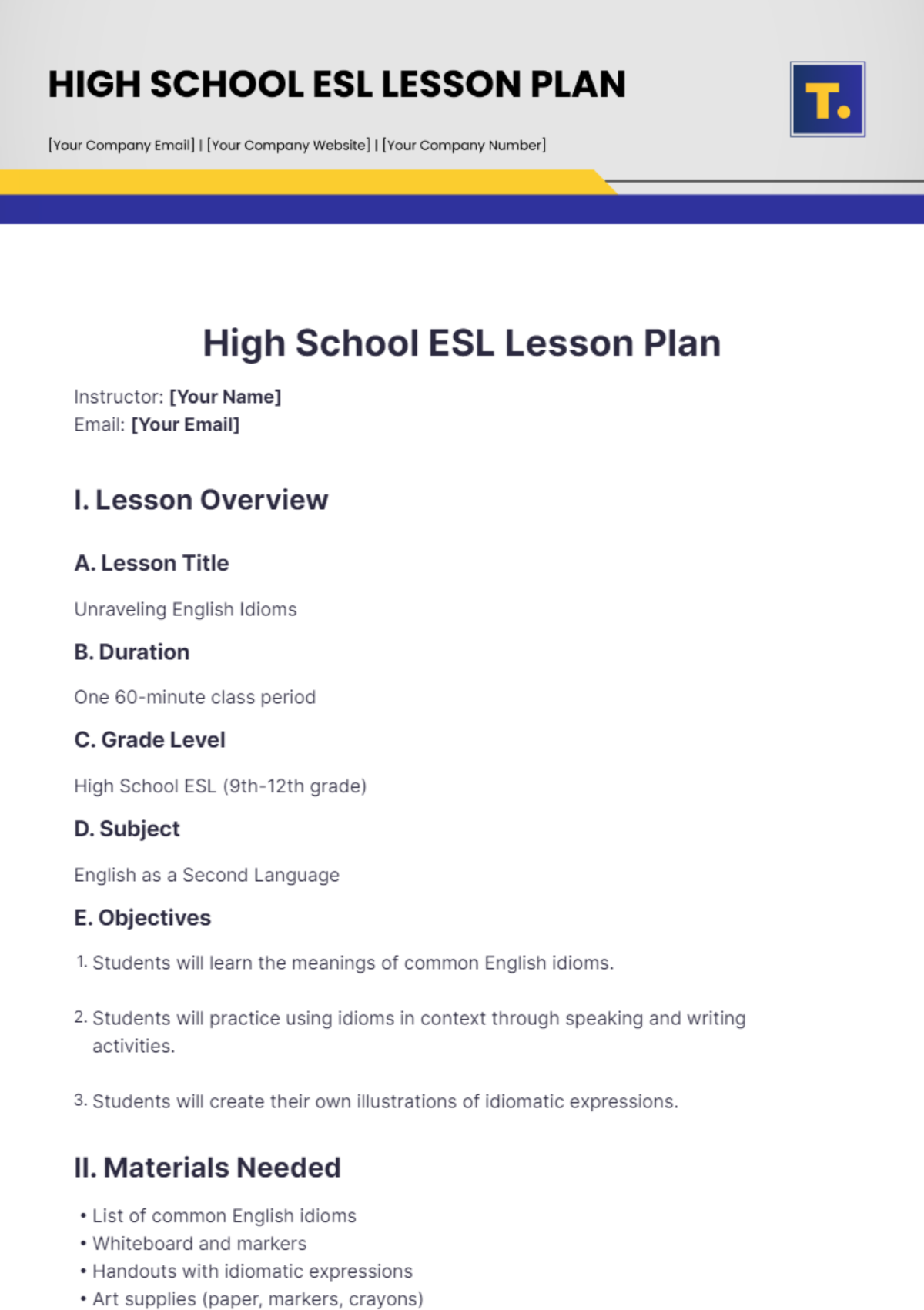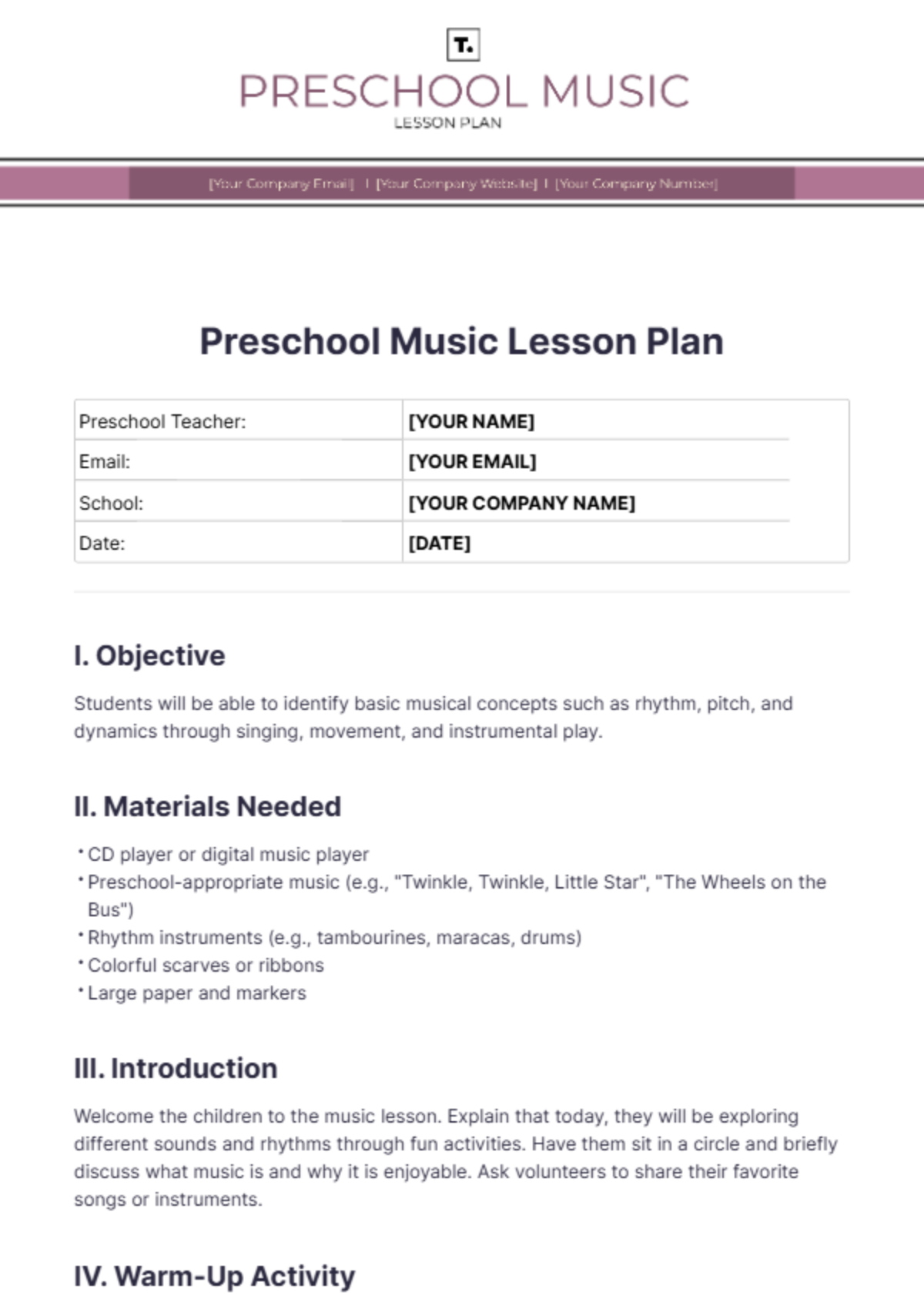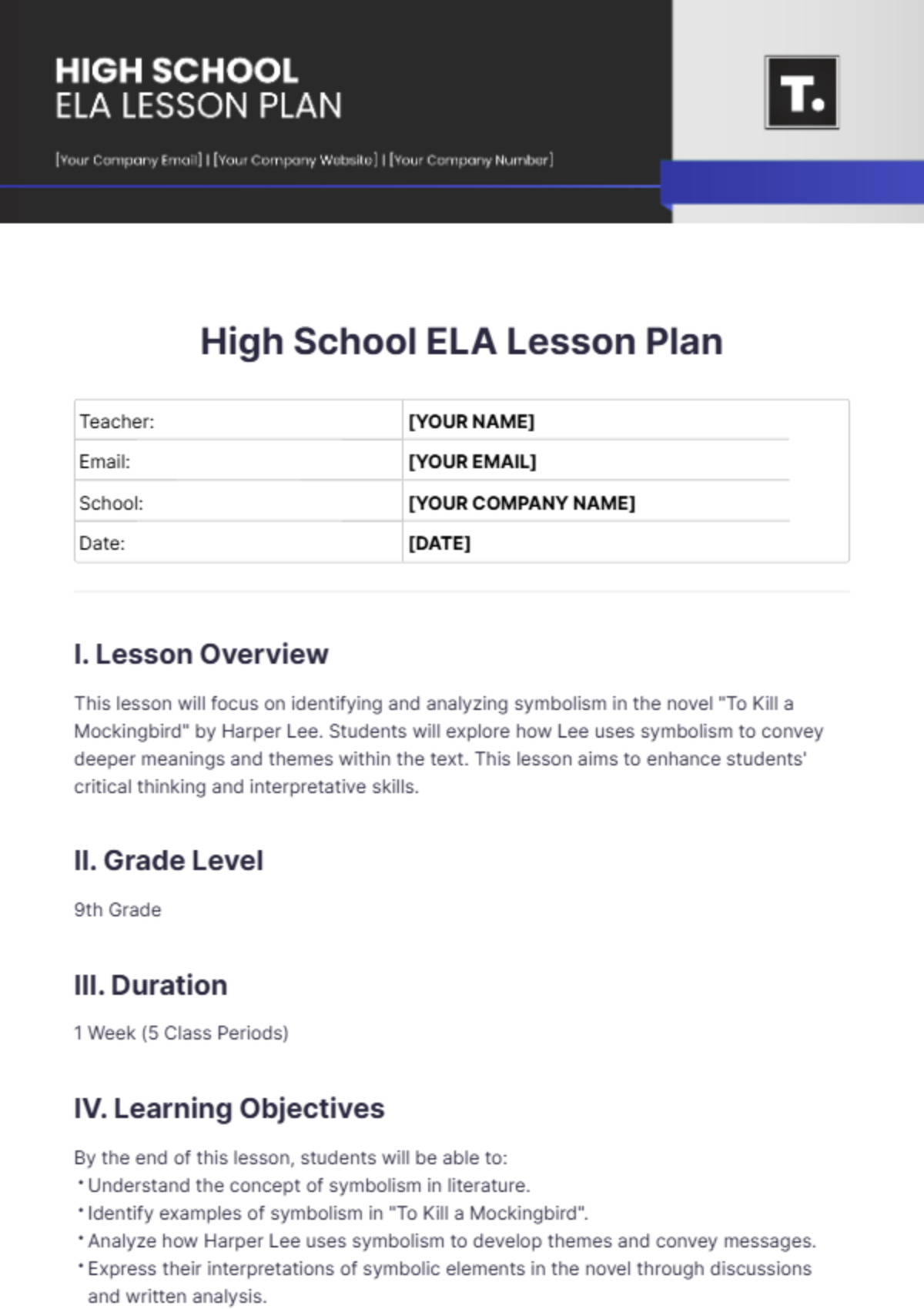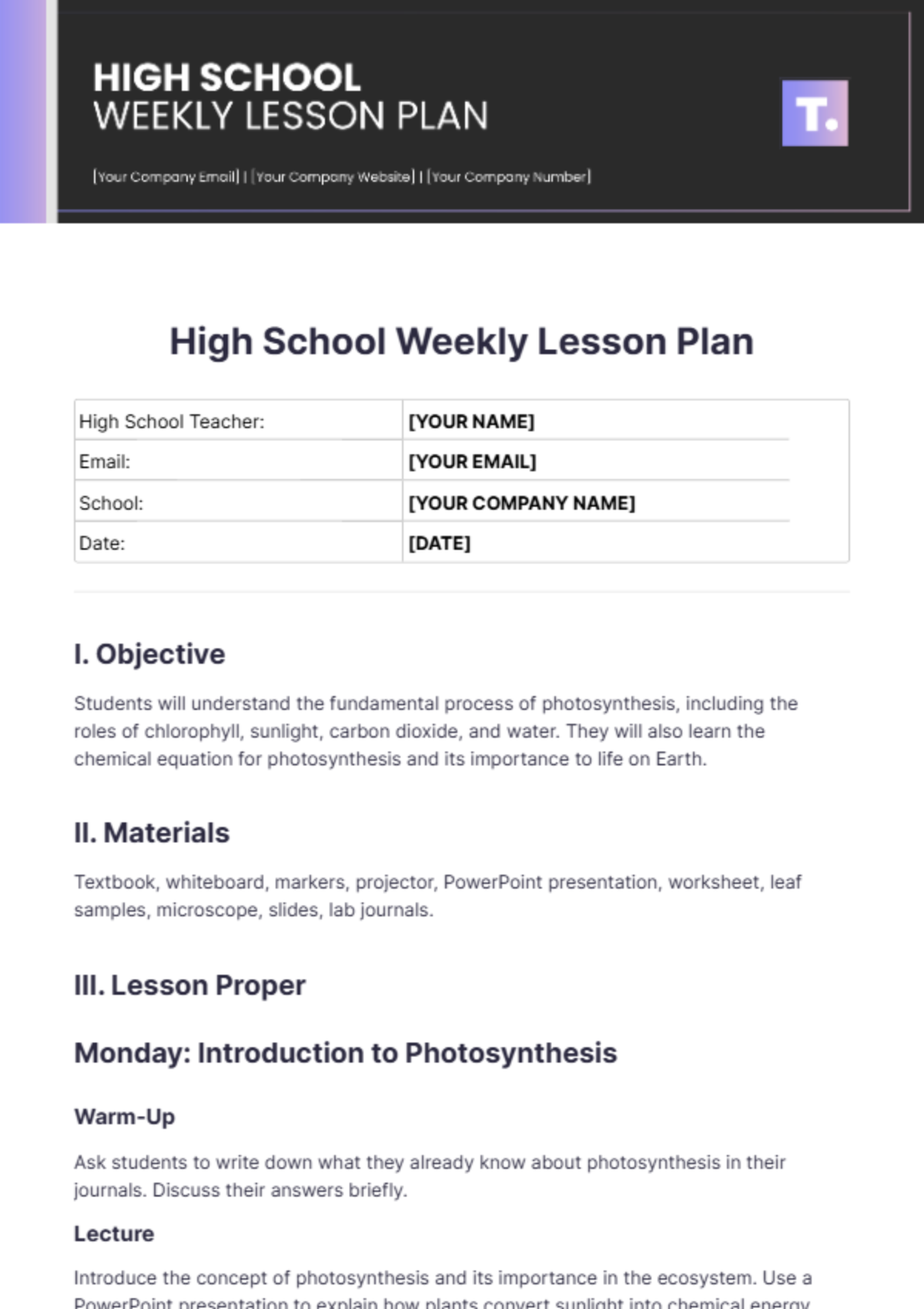TUTORING LESSON PLAN
I. Session Details
Tutor: [Your Name], Associate Professor of Biology
Student: [Student's Name]
Date: May 28, 2024
Duration: 2 hours
II. Learning Objectives
A. Knowledge Goals:
Ensure [Student's Name] comprehends fundamental scientific principles pertinent to her current curriculum, such as cellular biology and genetic inheritance, to lay a robust foundation for advanced studies in the field.
B. Skill Goals:
Foster [Student's Name] development of problem-solving skills within the realm of science, focusing on logical reasoning and analytical thinking, particularly in experimental design and data analysis, is essential for success in higher-level science courses and future scientific endeavors.
C. Application Goals:
Encourage [Student's Name] to apply acquired knowledge and skills to practical scenarios, such as understanding genetic disorders' inheritance patterns and designing experiments to test hypotheses related to cellular processes, fostering critical thinking and scientific inquiry skills.
III. Materials
A. Required Materials:
Textbooks and study materials aligned with the science syllabus, including "Biology: Concepts and Connections" by Campbell et al. and lecture notes from her class, providing a structured foundation for learning.
B. Additional Resources:
Supplementary articles, educational videos, and interactive simulations sourced from reputable sources like Khan Academy and the National Science Foundation website, offer a deeper understanding of complex scientific concepts and cater to diverse learning styles.
C. Technology Needed:
Access to online research databases such as PubMed and educational platforms like Coursera for conducting in-depth investigations and accessing supplementary learning materials, empowering [Student's Name] to explore scientific topics beyond the confines of traditional classroom resources.
IV. Session Structure
Time | Activity |
|---|---|
10:00 AM | Introduction and Review of Previous Lesson: Engage [Student's Name] in a dialogue to recapitulate key concepts covered in the previous session, such as mitosis and meiosis, and encourage her to express any lingering questions or uncertainties, fostering active participation and reinforcing retention. |
10:15 AM | Presentation of New Concepts: Deliver an engaging lecture augmented with visual aids and interactive demonstrations to introduce new scientific principles, such as Mendelian genetics and the structure of DNA, stimulating [Student's Name] curiosity and facilitating comprehension through multiple sensory modalities. |
10:45 AM | Guided Practice: Facilitate hands-on activities and problem-solving exercises, such as Punnett square calculations and pedigree analysis, to provide with practical experience applying theoretical knowledge, promoting mastery through active engagement and immediate feedback. |
11:15 AM | Break: Provide a brief intermission to recharge and refocus, fostering a conducive learning environment and preventing cognitive fatigue, ensuring optimal retention and participation in subsequent activities. |
11:30 AM | Application of Concepts: Engage in applying learned concepts to real-world scenarios, such as analyzing genetic inheritance patterns in familial traits and designing experiments to investigate cellular processes like osmosis and diffusion, fostering critical thinking and scientific inquiry skills essential for scientific literacy and research endeavors. |
12:00 PM | Wrap-Up and Homework Assignment: Summarize key takeaways from the session, assign relevant homework tasks, such as completing textbook exercises and conducting independent research on a chosen scientific topic, and outline expectations for the next session, promoting continuity and accountability in the learning journey. |
V. Assessment
Criteria | Assessment Method |
|---|---|
Understanding of Concepts | Evaluate comprehension through verbal questioning and a brief quiz covering key concepts discussed during the session, such as genotype-phenotype relationships and the central dogma of molecular biology, gauging her mastery and identifying areas for further clarification or review. |
Application of Skills | Assess their ability to apply learned principles to problem-solving exercises and practical scenarios provided during the session, such as analyzing experimental data and interpreting results to draw meaningful conclusions, evaluating their proficiency in applying theoretical knowledge to real-world contexts. |
Engagement and Participation | Monitor engagement and participation levels throughout the session, noting active involvement in discussions and activities, such as asking clarifying questions and contributing ideas to group exercises, fostering a supportive and inclusive learning environment conducive to academic growth and collaboration. |
VI. Tutor’s Reflection
As an experienced professor in the field of biology and dedicated to fostering academic excellence, I found today's tutoring session to be highly productive. [Student's Name] demonstrated a commendable understanding of the material and exhibited enthusiasm for exploring scientific concepts further. However, I observed opportunities for improvement in the application of theoretical knowledge to practical scenarios, particularly in experimental design and data analysis. We will address these areas through targeted practice and additional resources in subsequent sessions. Overall, I am encouraged by [Student's Name] progress and remain committed to providing tailored support to facilitate her academic growth in science.
